
Kerry Bolton
Ex: http://www.wermodandwermod.com/
Abstract
There is a subject that generally seems to be “no go” among academe: a critical attitude towards Trotsky and a less than slanderous attitude towards his nemesis, Stalin. Submission of papers on the subject is more likely to elicit responses of the type one would expect from outraged Trotskyite diehards than those of a scholarly critique. However, the battle between Trotsky and Stalin is not just one of theoretical interest, as it laid the foundations for outlooks on Russia and strategies in regard to the Cold War. The legacy continues to shape the present era, even after the implosion of the USSR. The following paper is intended to consider the Stalinist allegations against Trotsky et al in the context of history, and how that history continues to unfold.
Introduction
Trotsky had received comparatively good press in the West, especially since World War II, when the wartime alliance with Stalin turned sour. Trotsky has been published by major corporations,[1] and is generally considered the grandfatherly figure of Bolshevism.[2] “Uncle Joe,” on the other hand, was quickly demonized as a tyrant, and the “gallant Soviet Army” that stopped the Germans at Stalingrad was turned into a threat to world freedom, when in the aftermath of World War II the USSR did not prove compliant in regard to US plans for a post-war world order.[3] However, even before the rift, basically from the beginning of the Moscow Trials, Western academics such as Professor John Dewey condemned the proceedings as a brutal travesty. The Moscow Trials are here reconsidered within the context of the historical circumstances and of the judicial system that Trotsky and other defendants had themselves played prominent roles in establishing.
A reconsideration of the Moscow Trials of the defendants Trotsky et al is important for more reasons than the purely academic. Since the scuttling of the USSR and of the Warsaw Pact by a combination of internal betrayal and of subversion undertaken by a myriad of US-based “civil societies” and NGOs backed by the likes of the George Soros network, Freedom House, National Endowment for Democracy, and dozens of other such entities,[4] Russia – after the Yeltsin interregnum of subservience to globalisation –has sought to recreate herself as a power that offers a multipolar rather than a unipolar world. A reborn Russia and the reshaping of a new geopolitical bloc which responds to Russian leadership, is therefore of importance to all those throughout the world who are cynical about the prospect of a “new world order” dominated by “American ideals.” US foreign policy analysts, “statesmen” (sic), opinion moulders, and lobbyists still have nightmares about Stalin and the possibility of a Stalin-type figure arising who will re-establish Russia’s position in the world. For example, Putin, a “strongman” type in Western-liberal eyes at least, has been ambivalent about the role of Stalin in history, such ambivalence, rather than unequivocal rejection, being sufficient to make oligarchs in the USA and Russia herself, nervous. Hence, The Sunday Times, commenting on the Putin phenomena being dangerously reminiscent of Stalinism, stated recently:
Joseph Stalin sent millions to their deaths during his reign of terror, and his name was taboo for decades, but the dictator is a step closer to rehabilitation after Vladimir Putin openly praised his achievements.
The Prime Minister and former KGB agent used an appearance on national television to give credit to Stalin for making the Soviet Union an industrial superpower, and for defeating Hitler in the Second World War.
In a verdict that will be obediently absorbed by a state bureaucracy long used to taking its cue from above, Mr Putin declared that it was “impossible to make a judgment in general” about the man who presided over the Gulag slave camps. His view contrasted sharply with that of President Medvedev, Russia’s nominal leader, who has said that there is no excuse for the terror unleashed by Stalin.
Mr Putin said that he had deliberately included the issue of Stalin’s legacy in a marathon annual question-and-answer programme on live television, because it was being “actively discussed” by Russians.[5]
While The Times’ Halpin commented that Putin nonetheless gave the obligatory comments about the brutality of Stalin’s regime, following a forceful condemnation of Stalin by Medvedev on October 9, 2009, it is worrying nonetheless that Putin could state that positive aspects “undoubtedly existed.” Such comments are the same as if a leading German political figure had stated that some positive aspects of Hitler “undoubtedly existed.” The guilt complex of Stalinist tyranny, having its origins in Trotskyite Stalinophobia, which has been carried over into the present “Cold War II” era of a bastardous mixture of “neo-cons” (i.e., post-Trotskyites) and Soros type globalists, often working in tandem despite their supposed differences,[6] is supposed to keep Russian down in perpetuity. Should Russia rise again, however, the spectre of Stalin is there to frighten the world into adherence to US policy in the same way that the “war on terrorism” is designed to dragoon the world behind the USA. Just as importantly, The Times article commented on Putin’s opposition to the Russian oligarchy, which has been presented by the Western news media as a “human rights issue”:
During the television programme, Mr Putin demonstrated his populist instincts by lashing out at Russia’s billionaire class for their vulgar displays of wealth. His comments came after a scandal in Geneva, when an elderly man was critically injured in an accident after an alleged road race involving the children of wealthy Russians in a Lamborghini and three other sports cars. “The nouveaux riches all of a sudden got rich very quickly, but they cannot manage their wealth without showing it off all the time. Yes, this is our problem,” Mr Putin said.[7]
This all seems lamentably (for the plutocrats) like a replay of what happened after the Bolshevik Revolution when Stalin kicked out Trotsky et al. Under Trotsky, the Bolshevik regime would have eagerly sought foreign capital.[8] It is after all why plutocrats would have had such an interest in ensuring Trotsky’s safe passage back to Russia in time for the Bolshevik coup, after having had a pleasant stay with his family in the USA as a guest of Julius Hammer, and having been comfortably ensconced in an upmarket flat, with a chauffeur at the family’s disposal.[9] In 1923 the omnipresent globalist think tank the Council on Foreign Relations, was warning investors to hurry up and get into Soviet Russia before something went wrong,[10] which it did a few years later. Under Stalin, even Western technicians were not trusted.[11]
Of particular note, however, is that well-placed Russian politicians and academics are still very aware of the globalist apparatus that is working for what is frequently identified in Russia as a “new world order,” and the responsibility Russia has in reasserting herself to lead in reshaping a “multipolar” world contra American hegemony. This influences Russia’s foreign policy, perhaps the most significant manifestation being the BRIC alliance,[12] despite what this writer regards as the very dangerous liaison with China.[13]
What is dismissed as “fringe conspiracy theory” by the superficial and generally “kept” Western news media and academia, is reported and discussed, among the highest echelons of Russian media, politics, military, and intelligentsia, with an analytical methodology that is all but gone from Western journalism and research. For example the Russian geopolitical theorist Alexander Dugin is a well-respected academic who lectures at Moscow State University under the auspices of the Center for Conservative Studies, which is part of the Department of Sociology (International Relations)[14] The subjects discussed by Professor Dugin and his colleagues and students feature the menace of world government and the challenges of globalism to Russian statehood. The movement he inspired, Eurasianism, has many prominent people in Russia and elsewhere.[15]
Perhaps the best indication of Russia’s persistence in remaining resistant to globalist and hegemonic schemes for world re-organization is the information that is published by the Ministry of International Affairs. Despite the disclaimer, the articles and analyses are a far cry from the shallowness of the mainstream news media of the Western world. Articles posted by the Ministry as this paper is written include a cynical consideration of the North African revolutions and the role of “social media;”[16] and an article pointing to the immense socio-economic benefits wrought by the Qaddafi regime, which is now being targeted by revolts “backed by Western intelligence services.”[17] Political analyst Sergei Shashkov theorizes that:
Recent events perfectly fit into the US-invented concept of “manageable chaos” (also known as “controlled instability” theory). Among its authors are: Zbigniew Brzezinski, a Polish American political scientist, Gene Sharp, who wrote From Dictatorship to Democracy, and Steven Mann, whose Chaos Theory and Strategic Thought was published in Washington in 1992, and who was involved in plotting “color revolutions” in some former Soviet republics.[18]
The only place one is going to get that type of analyses in the West is in alternative media sources such as The Foreign Policy Journal or Global Research. What Western government Ministry would have the independence of mind to circulate analyses of this type? Russians have the opportunity to be the most well-informed people in the world in matters that are of real importance. Westerners, on the other hand, do have that essential freedom – to watch US sitcoms and keep abreast of the tittle-tattle of movie stars and pop singers. Clearly, Russia is not readily succumbing to the type of post-Cold War world as envisaged by plutocrats and US hegemonists, expressed by George H W Bush in his hopes for a “new world order” after the demise of the Soviet bloc.[19] Beginning with Putin, Russia has refused to co-operate in the establishment of the “new world order” just as Stalin did not go along with similar schemes intended for the post-World War II era.
The purging of the USSR of Trotskyites and others by Stalin constituted the first significant move against plutocratic aspirations for Russia. The subsequent Russophobia that continues among American foreign policy and other influential circles has an ideological and historical framework arising to a significant extent therefore. The Moscow Trials, and the reaction symbolized by the Dewey Commission, gave primary impetus to a movement that was to metamorphose from Trotskyism to post-Trotskyism and ultimately to the oddly named “neo- conservatism,” and to leading NGOs such as the National Endowment for Democracy. The foundation for the present historical phenomena in regard to Russia was being embryonically shaped even within the Dewey Commission, certain of whose members ended up becoming Cold Warriors.
In the spirit of this legacy, the oligarchs, who were to be unleashed on Russia after the destruction of the USSR, are being upheld by their champions in the West as victims of neo-Stalinism, and their trials are being compared to those of Stalin’s “Moscow Show Trials.” Hence, American Professor Paul Gregory, a Fellow of the Hoover Institution, co-editor of the “Yale-Hoover Series on Stalin, Stalinism, and Cold War,” etc., writes of the trial of oligarch Mikhail Khodorkovsky:
When the history of Russian justice is written fifty years from now, two landmark court cases will stand out: The death sentence of Nikolai Bukharin in his Moscow show trial of March 1938 and the second prison sentence of Mikhail Khodorkovsky expected December 27, 2010. Both processes teach the same object lesson: anyone who crosses the Kremlin will be punished without mercy. There will be no protection in the courts for the innocent, and the guilty verdict and sentence will be already predetermined behind the Kremlin walls. It also does not matter how preposterous or ludicrous the charges. Vladimir Putin was born in 1952, only one year before Stalin’s death. But Stalin’s system of justice was institutionalized and survived Stalin and the collapse of the Soviet Union, for use by apt pupils such as Putin . . . [20]
If Russia continues to take a “wrong turn” (sic) as it is termed by the US foreign policy Establishment,[21] then we can expect the regime to be increasingly demonized by being compared to that of Stalin, just as other regimes ripe for “change,” (such as Milosovic’s Serbia, Saddam’s Iraq and Qaddafi’s Libya) according to the agenda of the globalists, are demonized. John McCain, stated on the Floor of the Senate, speaking of the “New START Treaty” with Russia, that the Khodorkovsky trial indicated that flawed nature of Russia, although McCain admitted that he was “under no illusions” that some of the gains of the oligarch might have been “ill-gotten.”[22] However, to those who do not like the prospect of a renewal of Russia influence, Khodorkovsky is a symbol of the type of Russia they hoped would emerge after the demise of the USSR, and the oligarchs are portrayed as victims of Stalin-like injustice. Old Trot Carl Gershman, the founding president of the Congressionally-funded National Endowment for Democracy, used the Khodorkovsky sentencing as the primary point of condemnation of Russia in his summing up of the world situation frordemocracy in 2010, when stating that:
As 2010 drew to a close, the backsliding accelerated with a flurry of new setbacks—notably the rigged re-sentencing of dissident entrepreneur Mikhail Khodorkovsky in Russia, the brutal repression of the political opposition in Belarus following the December 19 presidential election, and the passage of a spate of repressive new laws in Venezuela, where President Hugo Chavez assumed decree powers.[23]
One can expect “velvet revolutions” to break out in Belarus and Venezuela at any time now, although Russia will obviously take longer to deal with. Hence the vitriol will take on increasingly Cold War proportions, with the accusation of a Stalinist revival being used as prime propaganda material. It is against this background that the legacy of Stalin, including the Moscow Trials for which he is particularly condemned, should be examined.
Background of the Trials
The Moscow Trials comprised three events: The first trial, held in August 1936, involved 16 members of the “Trotskyite-Kamenevite-Zinovievite-Leftist-Counter-Revolutionary Bloc.” The two main defendants were Grigory Zinoviev and Lev Kamenev. The primary accusations against the defendants were that they had, in alliance with Trotsky, been involved in the assassination of Sergey Kirov in 1934, and of plotting to kill Stalin.[24] After confessing to the charges, all were sentenced to death and executed.
The second trial in January 1937 of the “anti-Soviet Trotskyite-Centre” comprised 17 defendants, including Karl Radek, Yuri Piatakov and Grigory Sokolnikov, who were accused of plotting with Trotsky, who was said to be in league with Nazi Germany. Thirteen of the defendants were executed, and the remainder died in labor camps.
The third trial was held in 1938 against the “Bloc of Rights and Trotskyists,” with Bukharin as the chief defendant. They were accused of having planned to assassinate Lenin and Stalin in 1918, and of having plotted to dismember the USSR for the benefit of foreign powers.
These trials have been condemned as “show trials” yet the very openness to foreign journalists and diplomats, as distinct from secret tribunals, is surely an approach that is to be commended rather than condemned. It also indicates the confidence the Soviet authorities had in their charges against the accused, allowing the processes to be subjected to foreign scrutiny and comment.
The world generally has come to know the Moscow Trials as a collective travesty based on torture, threats to families and forced confessions, with the defendants in confused states, declaring their confessions of guilt by rote, as if hypnotised. The trials are considered in every sense modern-day “witch trials.” For example, Prof. Sidney Hook, co-founder of the “Dewey Commission,” cogently expressed the widely held view of the trials many years later that, “The confessions, exacted by threats and torture, physical and psychological, whose precise nature has never been disclosed, consisted largely of alleged ‘conversations about conversations.’”[25] However the opinions of first-hand observers are not unanimous in condemning the methodology of the trials. The US Ambassador to the USSR, himself a lawyer, Joseph E Davies, was to write of the trials in his memoirs published in 1945 (that is, about seven years after the Dewey Commission had supposedly proven the trials to have been a travesty):
At 12 o’clock noon accompanied by Counselor Henderson I went to this trial. Special arrangements were made for tickets for the Diplomatic Corps to have seats. . . . [26] . . . On both sides of the central aisle were rows of seats occupied entirely by different groups of “workers” at each session, with the exception of a few rows in the centre of the hall reserved for correspondents, local and foreign, and for the Diplomatic Corps. The different groups of “workers,” I am advised, were charged with the duty of taking back reports of the trials to their various organizations.[27]
Davies stated that among the foreign press corps were the following representatives: Walter Duranty and Harold Denny from The New York Times, Joe Barnew and Joe Phillips from The New York Herald Tribune, Charlie Nutter or Nick Massock from Associated Press, Norman Deuel and Henry Schapiro from United Press, Jim Brown from International News, and Spencer Williams from The Manchester Guardian. The London Observer, hardly pro-Soviet, opined that: “It is futile to think the trial was staged and the charges trumped up. The Government’s case against the defendants is genuine.”[28] Duranty from The New York Times stated of the 1936 trial of Kamenev, Zinoviev, et al that:
. . . The writer knows beyond doubt that the assassin [of Kirov] was used as an instrument for the needs of political terrorism… No one acquainted with present European politics can fail to realize that, whereas the Soviet government is doing it utmost to maintain peace, there are certain so-called Trotskyist organizations that are trying to cause trouble…[29]
Of Soviet prosecutor Andrei Vyshinsky, Davies opined that: “the prosecutor … conducted the case calmly and generally with admirable moderation.” Especially notable, given the subsequent claims that were made about the allegedly confused, brainwashed appearance and tone of the defendants, Davies observed: “There was nothing unusual in the appearance of the accused. They all appeared well nourished and normal physically.”[30] A delegation of the International Association of Lawyers stated:
We consider the claim that the proceedings were summary and unlawful to be totally unfounded. The accused were given the opportunity of taking counsels.... We hereby categorically declare that the accused were sentenced quite lawfully.[31]
In 1936 the British Labour Member of Parliament, D N Pritt KC, wrote extensively of his observations on the first Moscow Trial. In the lengthy article published in Russia Today, Pritt, after alluding to the apparently good condition of the defendants who, in accord with the observations of Davies, did not appear to have suffered under Soviet detention, wrote:
The first thing that struck me, as an English lawyer, was the almost free-and-easy demeanour of the prisoners. They all looked well; they all got up and spoke, even at length, whenever they wanted to do so (for the matter of that, they strolled out, with a guard, when they wanted to).
The one or two witnesses who were called by the prosecution were cross-examined by the prisoners who were affected by their evidence, with the same freedom as would have been the case in England.
The prisoners voluntarily renounced counsel; they could have had counsel without fee had they wished, but they preferred to dispense with them. And having regard to their pleas of guilty and to their own ability to speak, amounting in most cases to real eloquence, they probably did not suffer by their decision, able as some of my Moscow colleagues are.[32]
Pritt was struck by the informality of the proceedings, and commented on how the defendants could interrupt at will, in what seems to have been a freewheeling debate:
The most striking novelty, perhaps, to an English lawyer, was the easy way in which first one and then another prisoner would intervene in the course of the examination of one of their co-defendants, without any objection from the Court or from the prosecutor, so that one got the impression of a quick and vivid debate between four people, the prosecutor and three prisoners, all talking together, if not actually at the same moment—a method which, whilst impossible with a jury, is certainly conducive to clearing up disputes of fact with some rapidity. [33]
Pritt’s view of Vyshinsky is in accord with that of Davies, stating of the prosecutor: “He spoke with vigour and clarity. He seldom raised his voice. He never ranted, or shouted, or thumped the table. He rarely looked at the public or played for effect.”[34] Pritt stated that the fifteen defendants[35] “spoke without any embarrassment or hindrance.” Such was Pritt’s view of the proceedings that his concluding remark states: “But it is equally clear that the judicature and the prosecuting attorney of USSR have taken at least as great a step towards establishing their reputation among the legal systems of the modern world.”[36]
Although Pritt was a Labour Member of Parliament, and was not a communist party member, he was pro-Soviet. Was he, then, capable of forming an objective, professional opinion? Anecdotal evidence suggests he was. Jeremy Murray-Brown, biographer of the Kenyan leader Jomo Kenyatta, writing to the editor of Commentary in connection with the Moscow Trials, relates that he had had discussions with Pritt in 1970, in the course of which he asked Pritt about the trials:
His reply astonished me. “I thought they were all guilty,” he said, referring to Bukharin and his co-defendants. It was as simple as that; Pritt made no attempt at political justification, but reaffirmed what was for him a matter of clear professional judgment. …In terms of the Soviet Union’s own judicial system, Pritt said, he firmly believed the defendants in the Moscow trials were guilty as charged. It was an argument which came oddly from the man who defended Kenyatta.[37]
Kenyatta, whom Pritt went to Kenya to defend before a British colonial court, had been “evasive” under cross-examination, Pritt stated.[38] Pritt, despite his support for Kenyatta was able to judge the veracity of proceedings regardless of political bias, and had maintained his view of the Moscow trials even in 1970, when it would have been opportune, even among Soviet sympathizers, to conform to the accepted view, including the declarations of Khrushchev. Indeed, Sidney Hook, long since having become a Cold Warrior in the service of the USA, retorted:
In reply to Jeremy Murray-Brown: the significance of D N Pritt’s infamous defense of the infamous Moscow frame-up trials must be appraised in the light of Khrushchev’s revelations of Stalin’s crimes available to the public (outside the Soviet Union) long before Pritt’s avowals to Mr Murray-Brown. Pritt cannot have been unaware of them.[39]
Of course Pritt was not unaware of Khrushchev’s so-called “revelations.” Unlike many former admirers of Stalin, he was simply not impressed by their veracity, and it must be assumed that his scepticism was based on both his eminent judicial experience and his first-hand observations. Certainly, Sidney Hook’s leading role in the formation of the “Dewey Commission” for the exoneration of Trotsky on the pretext of “impartial” hearings, was itself a cynical travesty, as will be considered in this paper.
If there was a general consensus that the proceedings were legitimate, and a quite sceptical attitude towards the findings of the Dewey Commission, despite the eminence of its front man, Prof. John Dewey, what changed to result in such a dramatic and almost universal reversal of opinion? It was a change of perception in regard to Stalin in the aftermath of World War II, and not due to any sudden revelations about the Moscow Trials or about Stalin’s tyranny. The wartime alliance, which, it was assumed, would endure during the post-war era, instead gave way to the Cold War.[40] Such was the hatred of the Trotskyites for the USSR that they were willing to enlist in the ranks of the anti-Soviet crusade even to the extent of working for the CIA[41], and supporting the US in Korea and Vietnam to counter Soviet influence.[42] Their services, as experienced anti-Soviet propagandists, were eagerly sought. Hence the findings of the Dewey Commission, largely ignored in their own time, are now heralded as definitive. The nature of this “Dewey Commission” will now be considered.
“Preliminary Commission of Inquiry into the Charges Made Against Leon Trotsky in the Moscow Trials”
The so-called Dewey Commission, the full title of which was the “Preliminary Commission of Inquiry into the Charges Made Against Leon Trotsky in the Moscow Trials,” having a legalistic and even official sound to it, was convened in March 1937 on the initiative of the American Committee for the Defense of Leon Trotsky as a supposedly “impartial body.”[43] The purpose was said to be, “to ascertain all the available facts about the Moscow Trial proceedings in which Trotsky and his son, Leon Sedov, were the principal accused and to render a judgment based upon those facts.”[44] However, the composition of the Commission indicates that it was set up as a counter-show trial with the preconceived intention of exonerating Trotsky, and was created at the instigation of Trotsky himself.
The stage was set with the founding of the American Committee for the Defense of Leon Trotsky by Prof. Sidney Hook, who persuaded his mentor, Prof. John Dewey, to front for it. Just how “impartial” the Dewey Commission was might be deduced not only from its having been initiated by those sympathetic towards Trotsky, but also by a comment in a Time report at the occasion of Trotsky’s deportation from Norway en route to Mexico: “The American Committee for the Defense of Leon Trotsky spat accusations at the Norwegian Government last week for its ‘indecent and filthy’ behavior in placing the Great Exile & Mme Trotsky on the Norwegian tanker Ruth…”[45]
The mock “trial” organised by the Dewey Commission was prompted by a “demand” from Trotsky from his new abode in Mexico, who “publicly demanded the formation of an international commission of inquiry, since he had been deprived of any opportunity to reply to the accusations before a legally constituted court.”[46] A sub-commission was formed to travel to Mexico and to allow Trotsky to give testimony in his defense under what was supposed to include “cross-examination.” The sub-commission comprised:
- John Dewey as chairman, described by Novack as America’s foremost liberal and philosopher;
- Otto Ruehle, a German Marxist and former Reichstag Deputy;
- Alfred Rosmer, former member of the Executive Committee of the Communist International (1920-21);
- Wendelin Thomas, leader of the sailor’s revolt in Germany in 1918 and a former Communist Deputy in the Reichstag; and
- Carlo Tresca, Italian-American anarchist.[47]
Other members, whose political orientations are not mentioned by Novack, were:
- · Benjamin Stolberg, American journalist;
- · Suzanne La Follette, American journalist;
- · Carleton Beals, authority on Latin-American affairs;
- · Edward A Ross, Professor of Sociology at the University of Wisconsin;
- · John Chamberlain, former literary critic of the New York Times; and
- · Francisco Zamora, Mexican journalist.
Of these, Stolberg was a supporter of the Socialist Party, described by fellow commissioner Carleton Beals as being, along with other commissioners, thoroughly under Trotsky’s spell.[48] Suzanne La Follette was described by Beals as having a “worshipful” attitude towards Trotsky.[49] Edward A Ross, who had gone to Soviet Russia in 1917 had come back with a pro-Bolshevik sentiment, writing The Russian Bolshevik Revolution (1921) and The Russian Soviet Republic (1923). John Chamberlain, a Left-leaning liberal by his own description[50], was among those who became so obsessively anti-Soviet that they ended up as avid Cold Warriors in the US camp.[51] In 1946 Chamberlain and Suzanne La Follette, along with free market guru Henry Hazlitt, founded the libertarian journal The Freeman.[52] Both can therefore be regarded as among the many Trotsky-sympathizers who became apologists for American foreign policy,[53] and laid the foundation for the so-called “neo-conservative” movement. Chamberlain and La Follette continued to pursue a vigorous anti-Soviet line at the earliest stages of the Cold War.[54]
Trotsky’s lawyer for the Mexico hearings was Albert Goldman, who had joined the Communist Party of America on its founding in 1920. He was expelled from the party in 1933 for Trotskyism. Goldman was another Trotskyite who became a pro-US Cold Warrior.[55] The Dewey Commission’s “court reporter” (sic) was Albert M Glotzer, who had been expelled from the Communist Party USA in 1928 and with prominent American Trotskyite Max Shachtman, had founded the Communist League and subsequent factions, including the Social Democrats USA,[56] whose executive Secretary had been Carl Gershman, founding president of the National Endowment for Democracy. Glotzer had also served as Trotsky’s secretary in Turkey in 1931, and had met him on other occasions.[57] The Social Democrats USA provided particular support for the Cold War hawk, Sen. Henry Jackson, and has produced other foreign policy hawks such as Elliott Abrams.
Under the façade of an “impartial enquiry” and with a convoluted title that suggests a bona fide judicial basis, the Dewey Commission proceeded to Mexico to “interrogate” (sic) Trotsky on the pretence of objectivity;[58] an image that was to be quickly exposed by the resignation of one of the Commissioners, Carleton Beals.
"Trotsky's Pink Tea Party": The Beals Resignation
Although one would hardly suspect it now, at the time the Dewey Commission was perceived by many as lacking credibility. Time reported that when Dewey returned from Mexico the “kindly, grizzled professor” told a crowd of 3,500 in Manhattan that the preliminary results of the sub-commission justified the continuation of the Commission’s enquiries in the USA and elsewhere. Time offered the view that, “by last week the committee had proved nothing at all,” despite Dewey’s positive spin.[59] Time in referring to the resignation of Carleton Beals cited him as stating that the hearings had been “unduly influenced in Trotsky’s favor,” Beals having “resigned in disgust.”[60] The Dewey report appended a statement attempting to deal with Beals.[61] In a reply to Dewey, Beals wrote in The Saturday Evening Post that despite the publicly stated intention of the enquiry to determine the innocence or guilt of Trotsky the attitudes of the sub-commission members towards Trotsky were those of reverence:
“I want to weep,” remarks one commissioner as we pass out into the frowzy street, “to think of him being here.” All, including Doctor Dewey, chairman of the investigatory commission, join in the chorus of sorrow over Trotsky’s fallen star - except one commissioner, who sees the pathos of human change in less personal terms.[62]
Beals observing Trotsky in action considered that,
above all, his mental faculties are blurred by a consuming lust of hate for Stalin, a furious uncontrollable venom which has its counterpart in something bordering on a persecution complex - all who disagree with him are bunched in the simple formula of GPU agents, people “corrupted by the gold of Stalin.”[63]
It is evident from Beals’ comments - and Beals had no particular axe to grind - that the persona of Trotsky was far from the rational demeanour of a wronged victim. From Beals’ comments Trotsky seems to have presented himself in a manner that is suggestive of the descriptions often levelled against the Stalinist judiciary, making wild accusations about the supposed Stalinist affiliations of any detractors. Beals questioned Trotsky concerning his archives, since Trotsky was making numerous references to them to prove his innocence, but Trotsky “hems and haws.” While Trotsky denied that his archives had been purged of anything incriminating, important documents had been taken out. A primary insistence of Trotsky’s defense was his denial of having any communication with the accused after 1929. However Dr J Arch Getty comments:
Yet it is now clear that in 1932 he sent secret personal letters to former leading oppositionists Karl Radek, G. Sokol’nikov, E. Preobrazhensky, and others. While the contents of these letters are unknown, it seems reasonable to believe that they involved an attempt to persuade the addressees to return to opposition.[64]
Unlike virtually all Trotsky’s other letters (including even the most sensitive) no copies of these remain in the Trotsky Papers. It seems likely that they have been removed from the Papers at some time. Only the certified mail receipts remain. At his 1937 trial, Karl Radek testified that he had received a letter from Trotsky containing “terrorist instructions,” but we do not know whether this was the letter in question.[65]
It can be noted here that, as will be related below, Russian scholar Prof. Rogovin, in seeking to show that the Opposition bloc maintained an effective resistance to Stalin, also stated that a “united anti-Stalin bloc” did form in 1932, despite Trotsky’s claim at the Dewey hearings that there had been no significant contact with any of the Moscow defendants since 1929. Beals found it difficult to believe Trotsky’s insistence that his contacts inside the USSR had since 1930 consisted of no more than a half dozen letters to individuals. If it was the case that Trotsky no longer had a network within the USSR then he and the Fourth International, and Trotskyism generally, must have been nothing other than bluster.[66]
Beals’ less than deferential line of questioning created antagonism with the rest of the Commission. They began to change the rules of questioning without consulting him. Beals concluded by stating that either Finerty, whom he regarded as acting like Trotsky’s lawyer instead of that of the commission’s counsel, resign, or he would. Suzanne LaFollette “burst into tears” and implored Beals to apologise to Finerty, otherwise the “great historical occasion” would be “marred.” Beals left the room of the Mexican villa with the Commissioners chasing after him. Dewey was left to try and rationalize the situation with the press, while Beals countered that “the commission’s investigations were a fraud.”[67] In the concluding remarks of his article, with the subheading “The Trial that Proved Nothing,” Beals stated that:
- There had been no adequate cross-examination.
- The Trotsky archives had not been examined.
- The cross-examination was a “scant day and a half,” mostly taken up with questions about the Russian Revolution, relations with Lenin, and questions about dialectical theory.
- Most of the evidence submitted was in the form of Trotsky’s articles and books, which could have been consulted at a library.
The commission then resumed in New York, about which Beals predicted, “no amount of fumbling over documents in New York can correct the omissions and errors of its Mexican expedition,” adding:
From the press I learned that seven other commissions were at work in Europe, and that these would send representatives to form part of the larger commission. I was unable to find out how these European commissions had been created, who were members of them. I suspected them of being small cliques of Trotsky’s own followers. I was unable to put my seal of approval on the work of our commission in Mexico. I did not wish my name used merely as a sounding board for the doctrines of Trotsky and his followers. Nor did I care to participate in the work of the larger organization, whose methods were not revealed to me, the personnel of which was still a mystery to me.
Doubtless, considerable information will be scraped together. But if the commission in Mexico is an example, the selection of the facts will be biased, and their interpretation will mean nothing if trusted to a purely pro-Trotsky clique. As for me, a sadder and wiser man, I say, a plague on both their houses.[68]
As can be seen from the last sentence of the above, Beals was not aligned to either Trotsky or Stalin. He had accepted a position with the Dewey Commission in the belief that it sought to get to the matter of the accusations against the Moscow defendants, and specifically Trotsky, in a professional manner. What Beals found was a set-up that was predetermined to exonerate Trotsky and give the “Old Man” a podium upon which to vent his spleen against his nemesis, Stalin. It is also apparent that Trotsky attempted to detract accusations by alleging that anyone who doubted his word was in the pay of Stalin. Yet today the consensus among scholars is that Stalin contrived false allegations about Trotsky et al, and any suggestion to the contrary is met with vehemence rather than with scholarly rebuttal.[69]
The third session of the Mexico hearings largely proceeded on the question of the relations between Trotsky, Kamenev and Zinoviev, and the formation of the Stalin-Kamenev-Zinoviev troika that ran the Soviet state when Lenin became incapacitated. The primary point was that Kamenev and Zinoviev were historically rivals of Trotsky and allies of Stalin in the jockeying for leadership. However, the Moscow testimony also deals with the split of the troika, when alliances changed and Zinoviev and Kamenev became allied with Trotsky. Trotsky in reply to a question from Goldman as to the time of the split, replied: “It was during the preparation, the secret preparation of the split. It was in the second half of 1925. It appeared openly at the Fourteenth Congress of the Party. That was the beginning of 1926.”
Trotsky was asked to explain the origins of the Zinoviev split with Stalin and the duration of the alliance with Trotsky. This, it should be noted, was at the time of an all-out offensive against Stalin, during which, Trotsky explains in his memoirs, “In the Autumn the Opposition even made an open sortie at the meeting of Party locals.”[70] At the time the “New Opposition” group led by Zinoviev and Kamenev aligned with Trotsky to form the “United Opposition.” Trotsky also stated in his memoirs that Zinoviev and Kamenev, despite being ideologically at odds with Stalin, tried to retain their influence within the party, Trotsky having been outvoted by the Bolshevik Party membership which had in a general referendum voted 740,000 to 4,000 to repudiate him:
Zinoviev and Kamenev soon found themselves in hostile opposition to Stalin; when they tried to transfer the dispute from the trio to the Central Committee, they discovered that Stalin had a solid majority there. They accepted the basic principles of our platform. In such circumstances, it was impossible not to form a bloc with them, especially since thousands of revolutionary Leningrad workers were behind them.[71]
It seems disingenuous that Trotsky could subsequently claim that there could not have been a further alliance with Zinoviev and Kamenev, given that alliances were constantly changing, and that these old Bolshevik idealists seem to have been thoroughgoing careerists and opportunists willing to embrace any alliance that would further their positions. Trotsky cited the report of the party Central Committee of the July 1926 meeting at which Zinoviev confessed his “two most important mistakes;” that of having opposed the October 1917 Revolution, and that of aligning with Stalin in forming the “bureaucratic-apparatus of oppression.” Zinoviev added that Trotsky had “warned with justice of the dangers of the deviation from the proletarian line and of the menacing growth of the apparatus regime. Yes, in the question of the bureaucratic-apparatus oppression, Trotsky was right against us.”[72]
During 1927 the alliance between Trotsky, Zinoviev and Kamenev had fallen apart as Zinoviev and Kamenev again sought to flow with the tide. The break with Trotsky came just a few weeks before Trotsky’s expulsion from the Party, as the “Zinoviev group” wanted to avoid expulsion. However all the oppositionists were expelled from the party at the next Congress. Six months after their expulsion and exile to Siberia, Kamenev and Zinoviev reversed their position again, and they were readmitted to the party.
During 1927 Trotsky states that many young revolutionaries came to him eager to oppose Stalin for his having betrayed the Chinese Communists by insisting they subordinate themselves to Chiang Kai-shek. Trotsky claimed: “Hundreds and thousands of revolutionaries of the new generation were grouped about us… at present there are thousands of such young revolutionaries who are augmenting their political experience by studying theory in the prisons and the exile of the Stalin regime.”[73] With this backing the opposition launched its offensive against the Party:
The leading group of the opposition faced this finale with its eyes wide open. We realized only too clearly that we could make our ideas the common property of the new generation not by diplomacy and evasions but only by an open struggle which shirked none of the practical consequences. We went to meet the inevitable debacle, confident, however, that we were paving the way for the triumph of our ideas in a more distant future.[74]
Trotsky then referred to “illegal means” as the only method by which to force the opposition onto the Party at the Fifteenth Congress at the end of 1927. From Trotsky’s description of the tumultuous events during 1927 it seems clear that this was a revolutionary situation that the opposition was trying to create that would overthrow the regime just as the October 1917 coup had overthrown Kerensky:
Secret meetings were held in various parts of Moscow and Leningrad, attended by workers and students of both sexes…. In all, about 20,000 people attended such meetings in Moscow and Leningrad. The number was growing. The opposition cleverly prepared a huge meeting in the hall of the High Technical School, which had been occupied from within. The hall was crammed with two thousand people, while a huge crowd remained outside in the street. The attempts of the administration to stop the meeting proved ineffectual. Kamenev and I spoke for about two hours. Finally the Central Committee issued an appeal to the workers to break up the meetings of the opposition by force. This appeal was merely a screen for carefully prepared attacks on the opposition by military units under the guidance of the GPU. Stalin wanted a bloody settlement of the conflict. We gave the signal for a temporary discontinuance of the large meetings. But this was not until after the demonstration of November 7.[75]
In October 1927, the Central Executive Committee held its session in Leningrad, and a mass official demonstration was staged in honour of the event. Trotsky recorded that the demonstration was taken over by Zinoviev and himself and their followers by the thousands, with support from sections of the military and police. This was shortly followed by a similar event in Moscow commemorating the October 1917 Revolution, during which the opposition infiltrated the parades. A similar attempt at a parade in Leningrad resulted in the detention of Zinoviev and Radek, but Zinoviev wrote optimistically to Trotsky that this would play into their hands. However, at the last moment, the Zinoviev group backed down in order to try and avoid expulsion from the party at the Fifteenth Congress.[76] However Trotsky admitted to having conversations with Zinoviev and Kamenev at a joint meeting at the end of 1927. Trotsky then stated that he had a final communication from Zinoviev on November 7 1927 in which Zinoviev closes: “I admit entirely that Stalin will tomorrow circulate the most venomous “versions.” We are taking steps to inform the public. Do the same. Warm greetings, Yours, G. ZINOVIEV.”[77]
As stated by Goldman, Trotsky’s counsel at Mexico, the letter was addressed to Kamenev, Trotsky, and Y P Smilga. Trotsky explained that, “Smilga is an old member of the Party, a member of the Central Committee of the Party and a member of the Opposition, of the center of the Opposition at that time.” The following questioning then took place:
Stolberg: What do you mean by the center of the Opposition? The executive committee?
Trotsky: It was an executive committee, yes, the same as a central committee.
Goldman: Of the leading comrades of the Left Opposition?
Trotsky: Yes.’[78]
Trotsky stated that thereafter he had “absolute hostility and total contempt” for those who “capitulated,” and that he wrote many articles denouncing Zinoviev and Kamenev. Goldman read from a statement by prosecutor Vyshinsky at the January 28 session of the 1937 Moscow trial:
The Trotskyites went underground, they donned the mask of repentance and pretended that they had disarmed. Obeying the instruction of Trotsky. Pyatakov and the other leaders of this gang of criminals, pursuing a policy of duplicity, camouflaging themselves, they again penetrated into the Party, again penetrated into Soviet offices, here and there they even managed to creep into responsible positions of the state, concealing for a time, as has now been established beyond a shadow of doubt, their old Trotskyite, anti-Soviet wares in their secret apartments, together with arms, codes, passwords, connections and cadres.[79]
Trotsky in reply to a question from Goldman denied any further connection with Kamenev, Zinoviev or any of the other defendants at Moscow. However, as will be considered below, Trotsky, Kamenev and Zinoviev had formed an “anti-Stalinist bloc in June 1932,”[80] a matter only discovered after the investigations in 1935 and 1936 into the Kirov murder.
One of the features of both the first Moscow Trial of 1936 and the Dewey Commission was the allegation that defendant Holtzman, when an official for the Soviet Commissariat for Foreign Trade, had met Trotsky and his son Leon Sedov, at the Hotel Britsol in Copenhagen in 1932. It is a matter that remains the focus of critique and ridicule of the Moscow Trials. For example one Trotskyite article triumphantly declares: “Unbeknown to the prosecutors, the Hotel Bristol had been demolished in 1917! The Stalinist investigators had not done their homework.”[81] Prominent historians continue to cite the supposed non-existence of the Hotel Bristol when Trotsky and his son were supposed to be conspiring with Holtzman, as a primary example of the crass nature of the Stalinist allegations. While Trotsky confirmed that he was in Copenhagen at the time of the alleged meeting, the Dewey Commission accepted statements that the Hotel Bristol had burned down in 1917 and had never reopened. The claim had first been made by the Danish newspaper Social-Demokraten shortly after the death sentences of the 1936 trial had been carried out.[82] In response Arbejderbladet, the organ of the Danish Communist Party, pointed out that in 1932 the Grand Hotel was connected by an interior doorway to the café Konditori Bristol. Moreover both the hotel and the café were owned by a husband and wife team. Arbejderbladet editor Martin Nielsen contended that a foreigner not familiar with the area would assume that he was at the Hotel Bristol.
However these factors were ignored by the Dewey Commission, and still are ingored. Instead the Commission accepted a falsely sworn affidavit by Esther and B J Field, Trotskyites, who claimed that the Bistol café was two doors away from the Grand Hotel and that there was a clear distinction between the two enterprises. Goldman, Trotsky’s lawyer, had stated at the fifth session of the hearings in Mexico that despite the statements that Holtzman was forced to make at the 1936 Moscow trial that he had met Trotsky at the Hotel Bristol, and was “put up” there, “…immediately after the trial and during the trial, when the statement, which the Commissioners can check up on, was made by him, a report came from the Social-Democratic press in Denmark that there was no such hotel as the Hotel Bristol in Copenhagen; that there was at one time a hotel by the name of Hotel Bristol, but that was burned down in 1917…”
Goldman sought to repudiate a claim by the publication Soviet Russia Today that stated that the Bristol café is not next to the Grand Hotel, and used the Field affidavit for the purpose, and that there was no entrance connecting the two, the Fields stating,
As a matter of fact, we bought some candy once at the Konditori Bristol, and we can state definitely that it had no vestibule, lobby, or lounge in common with the Grand Hotel or any hotel, and it could not have been mistaken for a hotel in any way, and entrance to the hotel could not be obtained through it.[83]
The question of the Bristol Hotel was again raised the following day, at the 6th session of the Dewey hearings. Such was – and is – the importance attached to this in repudiating the Stalinist allegations as clumsy. In 2008 Sven-Eric Holström undertook some rudimentary enquiries into the matter. Consulting the 1933 street and telephone directories for Copenhagen he found that – the Field’s affidavit notwithstanding - the Grand Hotel and the Bristol café were located at the same address.[84] Furthermore, photographs of the period show that the street entrance to the hotel and the café were the same and the only signage from the outside states “Bristol.”[85] Again, contrary to the Field affidavit, diagrams of the building show that there was a lobby and internal entrance connecting the hotel and the café. Anyone walking off the street into the hotel would assume, on the basis of the signage and the common entrance that he had walked into a hotel called “Hotel Bristol.” Getty states that Trotsky’s papers archived at Harvard show that Holtzman, a “former” Trotskyite, had met Sedov in Berlin in 1932 “and gave him a proposal from veteran Trotskyist Ivan Smirnov and other left oppositionists in the USSR for the formation of a united opposition bloc,”[86] although Trotsky stated at the Dewey hearings on questioning by Goldman that he had never had any “direct or indirect communication” with Holtzman.
If the statements of Trotsky at to the Dewey Commission and his statements in My Life are considered in the context of the allegations presented by Vyshinsky at Moscow, a number of conclusions might be suggested:
- From 1925 there was a Trotsky-Zinoviev-Kamenev bloc, or an “Opposition center,” which Trotsky states had an “executive committee; which functioned as an alternative party ‘central committee.’”
- Although Zinoviev and Kamenev were aligned for a time with Stalin in a troika, they repudiated this in favour of a counter-revolutionary alliance with Trotsky, and spoke at mass demonstrations, along with others such as Radek.
- Trotsky subsequently condemned Kamenev, Zinoviev et al as “contemptible” for “capitulating,” but Zinoviev, on Trotsky’s own account, was writing to him in November 1928 and warning of what he expected to be Stalin’s attacks.
- Was the vehemence with which Trotsky attacked Kamenev, Zinoviev and other Moscow defendants a mere ruse to throw off suspicion in regard to a united Opposition bloc, which, according to Rogovin,[87] had been formalized as an “anti-Stalinist bloc” in 1932?
- On Trotsky’s own account he and Zinoviev, Kamenev, Radek, et al had been at the forefront of a vast counter-revolutionary organization that was of sufficient strength to organize mass disruptions of official events in Moscow and Leningrad, which also had support among military and police personnel.
From his exile in Siberia in 1928, Trotsky on his own account, despite the ever-watchful eye of the GPU, made his home the center of opposition activities.[88] Trotsky had been treated leniently in Siberian exile, and was asked to refrain from opposition activities, but responded with a defiant letter to the All-Union Communist Party and to the Executive Committee of the Communist International, in which he referred to Stalin’s “narrow faction.” He refused to renounce what he called, “the struggle for the interests of the international proletariat...” In the letter to the Politburo dated 15 March 1933, Trotsky warned in grandiose manner:
I consider it my duty to make one more attempt to appeal to the sense of responsibility of those who presently lead the Soviet state. You know conditions better than I. If the internal development proceeds further on its present course, catastrophe is inevitable.[89]
As a means of saving the Soviet Union from self-destruction Trotsky advocated that the Left Opposition be accepted back into the Bolshevik party as an independent political tendency that would co-exist with all other factions, while not repudiating its own programme:[90]
Only from open and honest cooperation between the historically produced fractions, fully transforming them into tendencies in the party and eventually dissolving into it, can concrete conditions restore confidence in the leadership and resurrect the party.[91]
With the failure of the Politburo to reply to Trotsky’s ultimatum, he published both the letter and a statement entitled “An Explanation.”[92] Trotsky then cited his “declaration” in reply to the “ultimatum” he had received to forego oppositionist activities, to the Sixth Party Congress from his remote exile in Alma Ata. In this “declaration” he stated what could also be interpreted as revolutionary opposition to the regime, insofar as he considered that the USSR under Stalin had become a bureaucratic state composed of a “depraved officialdom” that was working for “class interests hostile to the proletariat”:
To demand from a revolutionary such a renunciation (of political activity, i.e., in the service of the party and the international revolution) would be possible only for a completely depraved officialdom. Only contemptible renegades would be capable of giving such a promise. I cannot alter anything in these words ... To everyone, his due. You wish to continue carrying out policies inspired by class forces hostile to the proletariat. We know our duty and we will do it to the end.[93]
The lack of reply from the Politburo in regard to Trotsky’s ultimatum to accept him back into the Government resulted in Trotsky’s final break with the Third International and the creation of the Fourth International in rivalry with the Stalinist parties throughout the world. Trotsky declared that the Bolshevik party and those parties following the Stalinist line, as well as the Comintern now only served an “uncontrolled bureaucracy.”[94] That his aims were something other than mass education and the acceptance of a “tendency” within the Bolshevik party became clearer in 1933 when he wrote that, “No normal ‘constitutional’ ways remain to remove the ruling clique. The bureaucracy can be compelled to yield power into the hands of the proletariat only by force.”[95] What he was advocating was a palace coup that would remove Stalin with minimal disruption. This meant not “an armed insurrection against the dictatorship of the proletariat but the removal of a malignant growth upon it…” These would not be “measures of a civil war but rather the measures of a police character.”[96] The intent was unequivocal, and it appears disingenuous for Trotsky and his apologists to the present day to insist that nothing was meant other than for Trotskyism to be accepted as a “tendency” within the Bolshevik party that could debate the issues in parliamentary fashion.
If Trotsky was less than honest with the fawning Dewey Commission, the farcical “cross examination” by the Commission’s counsel was not going to expose it. Heaven forbid that Trotsky could lie to serve his own cause, and that he could be anything but a saintly figure. Certainly a less than deferential attitude toward Trotsky by Beals was sufficient to set the one objective commissioner at loggerhead with the others. Of the lie as a political weapon, Trotsky was explicit. Trotsky had written in 1938, the very year of the third Moscow Trial, an article chastising a grouplet of German Marxists for adhering to “bourgeoisie” notions of morality such as truthfulness. He stated, “that morality is a product of social development; that there is nothing invariable about it; that it serves social interests; that these interests are contradictory; that morality more than any other form of ideology has a class character.”[97]
Norms “obligatory upon all” become the less forceful the sharper the character assumed by the class struggle. The highest pitch of the class struggle is civil war which explodes into mid-air all moral ties between the hostile classes. … This vacuity in the norms obligatory upon all arises from the fact that in all decisive questions people feel their class membership considerably more profoundly and more directly than their membership in “society”. The norms of “obligatory” morality are in reality charged with class, that is, antagonistic content. … Nevertheless, lying and violence “in themselves” warrant condemnation? Of course, even as does the class society which generates them. A society without social contradictions will naturally be a society without lies and violence. However there is no way of building a bridge to that society save by revolutionary, that is, violent means. The revolution itself is a product of class society and of necessity bears its traits. From the point of view of “eternal truths’ revolution is of course “anti-moral.” … It remains to be added that the very conception of truth and lie was born of social contradictions.[98]
Given the lengthy ideological discourse on the value of the lie and the relativity of morality, it is absurd to rely on any statement Trotsky and his followers make about anything. He lied and obfuscated to the Dewey Commission in the knowledge that he was among friends.
Kirov's Murder
The year after Trotsky’s ultimatum to the Politburo (1934) the popular functionary Kirov was murdered. Trotsky’s view of Kirov was not sympathetic, calling him a “rude satrap [whose killing] does not call forth any sympathy.”[99] The consensus now seems to be that Stalin arranged for the murder of Kirov to blame the opposition as justification for launching a murderous purge against his rivals. For example Robert Conquest states that Kirov was a moderate and a popular rival to Stalin, whose murder was both a means of eliminating a rival and of launching a purge.[100] Not only Trotskyites and eminent historians such as Conquest share this view, but also it was implied by Khrushchev during his 1956 “secret address” to the 20th Congress of the Communist Party.[101] After Stalin’s death several Soviet administrations undertook investigations to try and uncover definitive evidence against him.
The original source for the accusations against Stalin regarding Kirov seems to have been an anonymous “Letter of an Old Bolshevik” published in 1937.[102] It transpired that the “Old Bolshevik” was a Menshevik, Boris Nicolaevsky, who claimed that his information came from Bukharin when the latter was in Paris in 1936. In 1988 Bukharin’s widow published a book on her late husband in which she denied that any such discussions had taken place between Bukharin and Nicolaevsky, and considered the “Letter” to be a “spurious document.”[103]
In 1955 the Presidium of the Central Committee of the Communist Party commissioned P N Pospelov, the Secretary of the Central Committee, to investigate Stalinist repression. It had been the opinion of the party by this time that Stalin had been behind the murder of Kirov. Another commission of enquiry was undertaken in 1956. Neither found evidence that Stalin had a hand in the Kirov killing but the findings were not released by Khrushchev, former foreign minister Molotov remarking of the 1956 enquiry: “The commission concluded that Stalin was not implicated in Kirov’s assassination. Khrushchev refused to have the findings published since they didn’t serve his purpose.”[104] As recently as 1989 the USSR was still making efforts to implicate Stalin, and a Politburo Commission headed by A Yakovlev was set up. The two year enquiry concluded that: “In this affair no materials objectively support Stalin’s participation or NKVD participation in the organisation and carrying out of Kirov’s murder.”[105] The findings of this enquiry were not released either.
J Arch Getty writes of the circumstances of the Kirov murder that the OGPU and the NKVD had infiltrated opposition groups and there had been sufficient evidence obtained to consider that the so-called Zinovievites were engaged in dangerous underground activity. Stalin consequently regarded this group as being behind the assassin, Nikolayev. Although their former followers were being rounded up, Pravda announced on December 23, 1934 that there was “insufficient evidence to try Zinoviev and Kamenev for the crime.”[106] When the trial against this bloc did occur two years later it was after many interrogations, and was therefore no hasty process. From the interrogations relative to the Kirov assassination Stalin found out about the continued existence of the Opposition bloc that focused partly around Zinoviev. Vadim Rogovin, a Professor at the Russian Academy of Sciences, wrote that Kamenev and Zinoviev had rejoined Trotsky and formed “the anti-Stalinist bloc in June 1932,” although Trotsky had maintained to the Dewey Commission and subsequently, that no such alliance existed and that he had nothing but contempt for Zinoviev and Kamenev. Rogovin, a Trotskyite academic having researched the Russian archives, stated:
Only after a new wave of arrests following Kirov’s assassination, after interrogations and reinterrogations of dozens of Oppositionists, did Stalin receive information about the 1932 bloc, which served as one of the main reasons for organizing the Great Purge.[107]
In 1934 Yakov Agranov, temporary head of the NKVD in Leningrad, had found connections between the assassin Nikolayev and leaders of the Leningrad Komsomol at the time of Zinoviev’s authority over the city. The most prominent was I I Kotolynov, whom Robert Conquest states “had, in fact, been a real oppositionist.”[108] Kotolynov, a “Zinovievite,” was among those of the so-called “Leningrad terrorist center” found guilty in 1934 of the death of Kirov. The investigation had been of long duration and the influence of Zinoviev’s followers had been established. However, there was considered to be insufficient evidence to charge Zinoviev and Kamenev.[109]
In 1935 other evidence came to light showing that Zinoviev and Kamenev were aware of the “terrorist sentiments” in Leningrad, which they had “inflamed.”[110] While several trials associated with the Kirov killing took place in 1935, in 1936 sufficient evidence had accrued to begin the first of the so-called “Moscow Trials,” of the “Trotsky -Zinoviev Terrorist Center,” including Trotsky and his son Sedov, who were tried in absentia. The defendant Sergei Mrachovsky testified that at the end of 1932 that a terrorist bloc was formed between the Trotskyites and the Zinovievites, stating:
That in the second half of 1932 the question was raised of the necessity of uniting the Trotskyite terrorist group with the Zinovievites. The question of this unification was raised by I N Smirnov… In the autumn of 1932 a letter was received from Trotsky in which he approved the decision to unite with the Zinovievites… Union must take place on the basis of terrorism, and Trotsky once again emphasised the necessity of killing Stalin, Voroshiloy and Kirov... The terrorist bloc of the Trotskyites and the Zinovievites was formed at the end of 1932.[111]
Despite the condemnation that such testimony has received from academia and media, this at least precisely accords with the relatively recent findings of the Trotskyite academic Prof. Rogovin, and the letter from Trotsky sent to Radek et al, in 1932, referred to by J Arch Getty. The Kirov investigations, which were a prelude to the Moscow Trials, were carefully undertaken. When there was still insufficient evidence against Trotsky, Zinoviev and Kamenev et al, this was conceded by the party press. When testimony was obtained implicating the leaders of an opposition bloc, this testimony has transpired to have conformed to what has come to light quite recently in both the Kremlin archives and the Trotsky papers at Harvard.
Rogovin’s Findings
The reality of the Opposition bloc in relation to the Moscow Trials was the theme of a lecture by Prof. Rogovin at Melbourne University in 1996. The motive of Rogovin was to present Trotskyism as having been an effective opposition within Stalinist Russia, and therefore he departs from the usual Trotskyite attitude of denial, stating:
. . . This myth says that virtually the entire population of the Soviet Union was reduced to a stunned silence by the terror, and either said nothing about the repression, or blindly believed in and supported the terror. This myth also claims that the victims of the repression were completely innocent of any crimes, including opposition to Stalin. They were, instead, victims of Stalin’s excessive paranoia. Since there was no serious opposition to the regime of Stalin, according to this myth, the victims were not guilty of such opposition.[112]
Rogovin alludes to anti-Stalinist leaflets that were being widely distributed in the USSR as late as 1938, calling for a “struggle against Stalin and his clique.” Rogovin also however states that there was much more to the opposition than isolated incidents of leaflet distribution:
Of course these are isolated incidents, but prior to the unleashing of the Great Terror there was a much more widespread, more serious, and well-organised opposition to Stalinism as a regime which had veered ever more widely away from the ideals of socialism.
This battle against Stalin began back in 1923 with the formation of the Left Opposition. The inner party struggle unfolded in ever sharper form throughout the 20s.
Thousands and thousands of communists took part in this opposition, openly in the early days and then, after opposition groups were banned, in illegal underground forms against the abolition of party democracy by the Stalinist party clique.
In 1932 the Opposition coalesced, “the old opposition groups” became more active, and “were joined by layers of newly-formed opposition groups.” Many representatives of the opposition groups that year began to discuss ways of uniting into an “anti-Stalinist bloc.” Rogovin states that the year previously Ivan Smirnov, one of the former leaders of the Left Opposition who had capitulated then returned to the opposition, went on an official trip to Berlin where he established contact with Trotsky’s son, Leon Sedov and discussed the need to “coordinate efforts between Trotsky and his son . . . .” What Rogovin states is in agreement with the supposedly forced confessions of the defendants at the Moscow Trials. J Arch Getty had also found similar material in the Trotsky Papers at Harvard, as previously referred to.
Rogovin states that it was only in 1935 and 1936, having assessed the information garnered from the Kirov investigation in 1934, that the secret police were able to find conclusive evidence on the existence of an anti-Stalinist bloc since 1932. “This was one of the main factors which drove Stalin to unleash the Great Terror,” states Rogovin, who also affirms the basis of the Stalinist accusations that “they did try to establish contact among themselves and fight for the overthrow of Stalin’s clique.”
Rogovin’s statements cannot be lightly dismissed. He was speaking as a sympathiser of Trotskyism, who had access to the Soviet archives in the writing of a six volume series on the political conflicts within the Communist Party SU and the Communist International between 1922 and 1940, of which Stalin’s Great Terror is volume four. On his sixtieth birthday in 1997, Rogovin received tribute from Trotskyite luminaries from Germany, Britain and the USA.[113]
Moscow Trials and the Comintern Pact
These events occurred at a time when the USSR was being encircled by hostile powers. War seemed inevitable, and the opposition bloc was of a type that any state in times of conflict could not afford to tolerate. The Anti-Comintern Pact was signed in 1936 between imperial Japan and Nazi Germany, forming an alliance of aggressive intent specifically aimed at the Soviet Union. While German expansion was ideologically based on annexing Russian territories,[114] the Moscow Trials and accusations against the Opposition bloc of complicity with foreign powers were taking place at a time when there was a likelihood of Japan also directing her expansion towards the USSR. The Japanese attacked the USSR in July 1938 and were halted at the Battle of Lake Khasan,[115] and although defeated, then moved in May 1939 into Mongolia up to the Khalkin Gol River.[116] The decisive victory of Russia here was enough to persuade the Japanese only then to re-direct their expansion into China and the Pacific.
From 1936, with the possibility of a two front war from expansionist powers which had joined in an overtly aggressive alliance, a more tolerant attitude by the Soviet regime against those who were advocating defeatism and discord, albeit couched in dialectical semantics about “defence of the degenerated workers’ state,” seems unrealistic, and was not even expected from the Western democracies in wartime, which went as far as classifying segments of their own populations as “enemy aliens” and interning them.[117]
Trotsky hoped that war would undermine the Stalinist regime and lead to a coup, just as World War I had produced a revolutionary situation. It is therefore disingenuous for Trotsky to insist that he was leading a “loyal opposition” that would defend a “degenerated workers’ state.” Trotsky had adopted a similar position in regard to World War I, contrary to the line insisted upon by Lenin,[118] in stating that he would support Russia’s continuation of the war against Germany, which made him the focus of British efforts via R H Bruce Lockhart, special agent to the British War Cabinet, to secure his support.[119] As Trotsky’s duplicity during World War I, and his close association with British Intelligence via R H Bruce Lockhart shows, Stalinist accusations of Trotskyite association with “foreign powers” was at least based on hard experience. Trotsky had shown himself willing to work with British intelligence during World War I in order to secure his own position to the point of defying Lenin.
Another important Moscow defendant, Karl Radek, had previously been an avid promoter of dialogue with the German extreme Right. Given that he was the living stereotype of an anti-Semitic caricature of what a “Jewish Bolshevik” was portrayed as being, there is nothing outlandish about the Stalinist allegation of oppositionists seeking alliances with Japan and Germany. Trotsky had been openly stating that a fascist war against the USSR would provide the revolutionary situation that would enable a coup against the Stalinist regime. Radek had eulogised before the Executive Committee of the Comintern in 1923, the “German Fascist” Schlageter, who had been executed by the French because of his resistance to the Ruhr occupation. Radek’s Bolshevik pitch was for an alliance with German “Fascism”: “We shall do all in our power to make men like Schlageter, who are prepared to go to their deaths for a common cause, not wanderers into the void, but wanderers into a better future for the whole of mankind…”[120] Given the situation confronting the Soviet Russia, form Japan and Germany, Stalin could not be complacent given the past actions of Radek, Trotsky, Zinoviev, Kamenev, and the intrigues of Smirnov and Holtzman et al.
While Trotsky claimed that in the event of war he was advocating the “defence of the degenerated workers’ state” on account of its nationalized economy, from the viewpoint of the Soviet regime, the Soviet Union could ill afford dissent and anti-state propaganda in the midst of war. Trotsky, despite his outrage at the allegation that he could play any part in assisting fascist or capitalist powers to invade the Soviet Union, nonetheless advocated a strategy that was to take advantage of the war to propagandise and subvert the Soviet Union to foment a revolutionary situation even among the armed forces, as the Bolsheviks had done during World War I:
We do not change our orientation. But suppose that Hitler turns his weapons to the East and invades the territories occupied by the Red Army ...? The Bolshevik-Leninists will combat Hitler, weapons in hand, but at the same time they will undertake a revolutionary propaganda against Stalin in order to prepare his overthrow at the next stage...[121]
With an attitude of the character openly stated by Trotsky, how tolerant was Stalin expected to be, in the face of extreme provocation at the time of immense internal and external problems? As will be shown below, when Trotsky was in authority, he did not possess any degree of toleration towards rivals and threats, both real and imagined, and did not flinch from having someone killed if it served his own agenda. Trotsky continued to call for a “revolutionary uprising” that implies something more than ‘educating the masses,” using class struggle phraseology to identify Stalin’s bureaucracy as a “class enemy”:
The Fourth International long ago recognized the necessity of overthrowing the bureaucracy by means of a revolutionary uprising of the toilers. Nothing else is proposed or can be proposed by those who proclaim the bureaucracy to be an exploiting “class.” The goal to be attained by the overthrow of the bureaucracy is the reestablishment of the rule of the Soviets, expelling from them the present bureaucracy . . . [122]
This was the nature of Trotsky’s continual call for the overthrow of the Soviet state as it was then constituted. Trotsky explained his position unequivocally in stating what he meant by ‘defending the Soviet state”:
This kind of “defense of the USSR” will naturally differ, as heaven does from earth, from the official defense which is now being conducted under the slogan: “For the Fatherland! For Stalin!” Our defense of the USSR is carried on under the slogan: “For Socialism! For the world revolution! Against Stalin!”[123]
How far could it be expected that Stalin should tolerate subversion and calls for the overthrow of his regime in the event of war with Japan and/or Germany? It is not a matter that was extended even to pacifists by the Western democracies during World War II, even in countries such as New Zealand who were relatively far form the war theatres. Additionally, the Western democracies did not even grant those confined for their pacifism the benefit of any legal proceedings; in contrast to the Moscow defendants, who were given full and public legal procedures according to the system of justice they had helped to create.
Moscow Trials in Accord with Soviet System
If the Trotskyites and their liberal and social democratic allies, as well as historians generally, regard the Moscow Trials as a modern-day “witch hunt,” it was one that proceeded in accordance with the system that Trotsky and the other defendants had fought to implement. The real source of the outrage comes from Stalin having outmanoeuvred his rivals, many such as Zinoviev and Kamenev having been opportunists who became the victims of their own system. Trotsky when in authority was as vehement about the need to eliminate saboteurs, plotters and conspirators as Stalin. Trotsky had stated in 1918: “By suppressing the Constituent Assembly the Soviets first and foremost broke politically the backbone of the intelligentsia’s sabotage. . . .We have broken the old sabotage and cleared out most of the old officials . . . .[124]
At this early period of the Bolshevik regime Trotsky was already alluding to “counter-revolutionary” plots within his own Red Army, yet when the same situation was suggested twenty years later in regard to Trotsky et al at the Moscow Trials, Trotsky fumed that any such suggestion was a lie. When Trotsky had the power he spoke and acted in ways that he and others – including mainstream historians – would describe as “Stalinism.” Trotsky wrote of these “plots”:
Running on ahead somewhat, I must mention that certain of our own Party comrades are afraid that the Army may become an instrument or a focus for counter-revolutionary plots. This danger, in so far as there is some justification for it, must compel us as a whole to direct our attention to the lower levels, to the rank-and-file soldiers of the Red Army. Here we can and must create a foundation such that any attempt to transform the Red Army into an instrument of counter-revolution will prove fruitless . . . . [125]
Yet it was precisely a strategy of Trotsky to try and form cadres within the Red Army, in particular during the course of war with Germany, which would enable him to reassume authority through a “police action” or coup that would replace the Stalinist apparatus.
Trotsky when in a position of authority was full of dark forebodings about sabotage and counter-revolution. One of the more shameful episodes was Trotsky’s falsifying evidence and fabricating charges against the commander of the Baltic Fleet, Aleksei Shchatsny. With impending capture of Helsingfors by German and Finnish White forces, and the order from the Commissariat of Naval Affairs under Trotsky to comply with the terms of the Brest-Litovsk Treaty, Shchatsny managed to get the Fleet to Kronstadt, a colossal achievement celebrated as the “Ice March of the Baltic Fleet.” Rabinowitch remarks of this: “Following this feat … He was now a popular hero, revered by the rank-and-file sailors as much as by his officers.”[126] However, the German threat to Kronstadt, Petrograd and the Baltic Fleet remained.[127] As German forces approached, there was a widespread belief that the Soviet authorities were complying with German demands and that Petrograd would be occupied. For the Soviet authorities in Moscow under Lenin and Trotsky the defence of Petrograd and of the Baltic Fleet were of secondary concern. [128]
Trotsky and Shchatsny were in conflict over Trotsky’s orders to scuttle the Baltic Fleet and demolish Fort Ino, “should the situation appear hopeless.” Shchatsny circulated Trotsky’s secret orders regarding the scuttling of the Fleet,[129] which put Trotsky in a poor light publicly. Trotsky protested indignantly at Shchatny’s trial, which he had instigated as a show trial against the acclaimed hero:
When, soon afterward, I received from Shchastny, who was at Kronstadt, a report that Fort Ino was, allegedly, threatened by a suddenly approaching German fleet, I replied, in conformity with my general directive, that, if the situation thus created became hopeless, the fort must be blown up. What did Shchastny do? He passed on this conditional directive in the form of a direct order from me for blowing up the fort, although there was no need for this to be done.[130]
Rabinowitch writes:
Information in Cheka and Naval archives indicates that Shchatsny was largely or wholly blameless in these matters, most importantly that he himself had prepared the fleet for demolition in the event of necessity and that his dissemination of Trotsky’s orders was less an effort to undermine Trotsky than a reflection of his close collaboration with the Baltic Fleet officer and sailor committees.[131]
Shchatsny submitted his resignation, but Trotsky refused it, ordered him to Moscow and,
set him up for arrest, and single-handedly organized an investigation, sham trial and death sentence on the spurious charge of attempting to overthrow the Petrograd Commune with the longer-term goal of overthrowing the Soviet republic.[132]
Trotsky condemned Shchatsny with allegations of “sowing panic,” “conspiracy,” having a “saviour” complex, and seeking power for himself:
Shchastny persistently and steadily deepened the gulf between the fleet and the Soviet power. Sowing panic, he steadily promoted his candidature for the role of savior. The vanguard of the conspiracy – the officers of the destroyer division – openly raised the slogan of a “dictatorship of the Baltic fleet.”
This was a definite political game – a great game, the goal of which was the seizure of power. When Messrs. Admirals and Generals start, during a revolution, to play their own personal political game, they must always be prepared to take responsibility for this game, if it should miscarry. Admiral Shchastny’s game has miscarried.[133]
Given the nature of Trotsky’s own agitation against the Stalinist regime, which includes a time when aggressive anti-Soviet powers were on the rise, a less deferential Dewey Commission might have asked of Trotsky, should he not “take responsibility for this game, if it should miscarry?” Trotsky in his own words had stated that his aim was the “seizure of power” through a palace coup, by infiltrating the police and armed forces. He had devoted years to agitating for the overthrow of the Soviet regime and creating a revolutionary organization for that purpose. Yet when faced with charges of the type that he had once trumped up against Shchastny in order to save have own position, Trotsky feigned great moral outage on the world stage, an outrage which extended beyond his own life and has had a permanent influence on the way much of the world perceives Russia, not only after the death of Stalin, but even after the demise of the USSR. Additionally, it appears that Trotsky, Zinoviev, Kamenev, Radek, Bukharin, and the others had a fairer and more judicial hearing than that received by Shchastny; or the many summarily executed during the years when Trotsky had authority in the Soviet state.
What can also be said about the Moscow Trials was that the confessions of the defendants, which are generally criticized and ridiculed as being delivered by rote as if the product of intense brainwashing and even torture, were also completely in accord with Bolshevik methodology. The character of these confessions was not unique to the Stalinist regime, and was an innate part of the Bolshevik mentality. To admit guilt even in the most abject manner not only before the tribunal of the Soviets but before what many of the defendants regarded as the tribunal of history did not require torture or brainwashing. Of these abject confessions for example, during the 1936 trial Kamenev, stated:
For ten years, if not more, I waged a struggle against the Party, against the government of the land of Soviets, and against Stalin personally. In this struggle, it seems to me, I utilized every weapon in the political arsenal known to me - open political discussion, attempts to penetrate into factories and works, illegal leaflets, secret printing presses, deception of the Party, the organization of street demonstrations, conspiracy and, finally, terrorism.[134]
Zinoviev stated:
We entered into an alliance with Trotsky. We filled the place of the Mensheviks, Socialist-Revolutionaries and white guards who could not come out openly in our country. We took the place of the terrorism of the Socialist-Revolutionaries. Not the pre-revolutionary terrorism which was directed against the autocracy, but the Right Socialist Revolutionaries’ terrorism of the period of the Civil War, when the S-R’s shot at Lenin. My defective Bolshevism became transformed into anti-Bolshevism, and through Trotskyism I arrived at fascism. Trotskyism is a variety of fascism, and Zinovievism is a variety of Trotskyism.[135]
If these confessions are looked at on their own merits, there is nothing outlandish about them. Rogovin has shown that there was such an Opposition bloc, that there were illegal printing presses operative; and Trotsky himself records the extent of the opposition, in alliance with Zinoviev and Kamenev, to the extent that they were able to mobilize thousands to disrupt the official October parades. While the Bolsheviks, whether Leninists or Stalinists or Trotskyites were, and are, rather loose with the smear-word “fascism” that is levelled at their opponents, “through Trotskyism” many did arrive at what was called in the USSR “fascism,” or more accurately avid support for US foreign policy during and after the Cold War, to the present time; to the point of Trotsky’s widow, Natalya Sedova, supporting the USA in Korea; and the entire Shachtmanite movement metamorphosing into anti-Sovietism and eventually the “neo-con” movement. The Stalinist analysis was in principle correct and prescient. History shows that the Stalinists saw in Trotskyism a movement that would end up being aligned with the most anti-Soviet elements, and there is nothing bizarre about the suspicion that Trotskyites and other oppositionists would seek alliance with actual “fascist” powers at a time when those powers were looking at for lebensraum. In the historical circumstances it would have been foolish for Stalin to ignore these trends, and to given them a tolerance that was not even accorded to “Christian pacifists” during World War II by the Western democracies, including those that were not in danger of invasion.
The abject natures of the defendants’ final pleas before the Court are comprehensible if we examine the Bolshevik method of self-criticism. They are prompted by an intense sense of self-guilt or shame regarding recognition of their own invidiousness when confronted with facts. Such abjectivity is not unheard of by murderers and others in the West in the present day. This could be called “The Judas Syndrome,” in regard to the legend of Judas having hanged himself in remorse for his betrayal of Christ.[136] Since 1929 the Soviet Union had embarked on a method known as Sama Kritica (“self-criticism”), which has its equivalent in the West known by such terms as “group therapy,” “sensitivity training” or “group encounters,” that became popular since the 1960s among corporations and government departments, in the USA especially, and has been promoted as therapeutic by “humanistic psychology.”[137] In the USSR in 1929 the slogan first appeared: “through Bolshevist self-criticism we will enforce the dictatorship of the proletariat.”[138] The population was divided into “collectives” of ten to twenty, who held meetings set in a circle where participants face one another, and each would undertake self-criticism and the confession of faults. However ‘self-criticism” was part of the Soviet system which was endorsed by Trotsky himself when he was in a position of authority, when he stated: “Without any doubt we are passing through a period of internal confusion, of great difficulty, and, what is most important, of self-criticism, which, let us hope, will lead to an inner cleansing and a new upsurge of the revolutionary movement.”[139] The abject nature of the confessions and final pleas of the Moscow defendants is hence not reliant on alleged threats, promises, torture or brainwashing. Trotsky was an advocate of “Marxist self-criticism” as early as 1904, at a time when he was closer to the Mensheviks. Robert Services comments on this: “outraging many Mensheviks he called for ‘Marxist self-criticism’ instead of ‘orthodox self-satisfaction.’”[140]
Stalin addressed the matter of “self-criticism” as a key Bolshevik mechanism eight years before the Moscow Trials. Writing in Pravda Stalin stated: “…As to self-criticism in our Party, its beginnings date back to the first appearance of Bolshevism in our country, to its very inception as a specific revolutionary trend in the working-class movement.”[141] Stalin also alluded to self-criticism appearing as a mechanism in 1904 in the Social Democratic party, quoting Lenin as stating, “self-criticism and ruthless exposure of its own shortcomings”[142] was a party method.
Indeed, as previously cited herein, Zinoviev had before the party Central Committee in July 1926, indulged in self-criticism, when he confessed that he had been wrong to have opposed Lenin and the Bolshevik coup in 1917 and to have opposed Trotsky, whose critique of the regime was correct. Hence, there was nothing new about the character of Zinoviev’s abjectivity at the Moscow Trial. He was a Judas who had been publicly exposed, like other defendants. Khrushchev’s “secret speech” to the Congress of the Communist Party in 1956, was a large-ranging example of “self-criticism.”[143]
Conclusion
The Moscow “Show Trials” operated within a system that had been created by those who became its victims. Within context they were therefore perfectly legitimate. The trials were undertaken during a time when aggressive powers had formed an alliance specifically aimed at the Soviet Union, against a background of intrigue long in the making by the defendants; in particular Trotsky, Zinoviev and Kamenev.
While it is disingenuous for Trotsky and his sympathisers to have the Moscow Trials viewed according to Western legal principles when they did not themselves subscribe to those principles, just as inadequate are the Western historians and writers who neglect to consider the historical background against which they were taking place.
There was indeed an Opposition bloc that was working to overthrow Stalin, and given the times and circumstances Stalin could ill afford to adopt a more “liberal” attitude when even the Western democracies later interned their dissidents during World War II as potential “fifth columnists,” including conscientious objectors, on the scantiest evidence at best.
With the prospect of a revived Russian super-power the spectre of Stalin is again being evoked by Western news media, politicians and academics, as are comparisons between the Moscow Trials and the present Russian trials of “dissident” oligarchs who are heralded in the West as the heirs to the like of Bukharin and as victims of a renascent Stalinism.
Notes:
[1] One of Trotsky’s publishers was Secker & Warburg, London, which published the Dewey Commission’s report, The Case of Leon Trotsky, in 1937. The proprietor, Fredric Warburg, was to become head of the British section of the CIA-sponsored, Cold War-era Congress for Cultural Freedom. (Frances Stonor Saunders, The Cultural Cold War : The CIA and the World of Arts and Letters (New York: The New Press, 2000), p. 111.
Trotsky’s Where is Britain going? was published in 1926 by George Allen & Unwin. His autobiography, My Life, was published by Charles Scribner’s Sons, New York, 1930. Stalin: an appraisal of the man and his influence, was published posthumously in 1946 by Harpers.
[2] The most salient example being the hagiographies by Isaac Deutscher, The Prophet Armed (1954), and The Prophet Unarmed: Trotsky 1921-1929 (1959), and The Prophet Outcast (Oxford University Press, 1963).
[3] K R Bolton, “Origins of the Cold War: How Stalin Foiled a New World Order,” Foreign Policy Journal, March 31, 2010,www.foreignpolicyjournal.com/origins-of-the-cold-war-how-stalin-foild-a-new-world-order/
Russian translation: “Origins of the Cold War,” Red Star, Russian Ministry of Defense, http://www.redstar.ru/2010/09/01_09/6_01.html
[5] Tony Halpin, “Vladimir Putin Praises Stalin for Creating a Super Power and Winning the War,” The Sunday Times, London, December 4, 2009, http://www.timesonline.co.uk/tol/news/world/europe/article6943477.ece
[6] K R Bolton, “The Globalist Web of Subversion,” The Foreign Policy Journal, February 7, 2011, http://www.foreignpolicyjournal.com/2011/02/07/the-globalist-web-of-subversion/all/1
[7] Tony Halpin, op. cit.
[8] Armand Hammer, Witness to History (Kent: Coronet Books, 1987), p. 160. Here Hammer relates his discussion with Trotsky and how the Commissar wished to attract foreign capital. Hammer later laments that this all turned sour under Stalin.
[9] Richard B Spence, “Interrupted Journey: British intelligence and the arrest of Leon Trotsky, April 1917,” Revolutionary Russia, 13 (1), 2000, pp. 1-28.
Spence, “Hidden Agendas: Spies, Lies and Intrigue Surrounding Trotsky’s American Visit January-April 1917,” Revolutionary Russia, Vol. 21, No. 1., 2008.
[10] Peter Grosse, “Basic Assumptions,” Continuing The Inquiry: The Council on Foreign Relations from 1921 to 1996, (New York: Council on Foreign Relations, 2006). The entire book can be read online at: Council on Foreign Relations: http://www.cfr.org/about/history/cfr/index.html
[11] The 1933 charges against employees of Metropolitan-Vickers, including six British engineers, accused of sabotage and espionage. M Sayers and A E Kahn, The Great Conspiracy Against Russia (London: Collett’s holdings, 1946), pp. 181-186.
[12] Brazil, Russia, India, China.
[13] K R Bolton, “Russia & China: An Approaching Conflict?,” The Journal of Social, Political & Economic Studies, Washington, Vol. 34, No. 2, Summer 2009.
[14] Center for Conservative Studies, Moscow State University, http://konservatizm.org/
[15] KR Bolton, “An ANZAC-Indo-Russian Alliance? Geopolitical Alternatives for New Zealand and Australia: Dugin’s ‘Eurasian’ Geopolitical Paradigm,” pp. 188-190, India Quarterly, Vol. 66, No. 2, 2010.
[16] Yuri Gavrilechk, “Days of anger: new era of revolutions,” International Affairs, April 1, 2011; http://en.interaffairs.ru/read.php?item=200
[17]Elena Ponomareva, “A strategy aimed at ruining Libya, International Affairs, March 21, 2011, http://en.interaffairs.ru/read.php?item=196
[18] Sergei Shashkov, “The theory of ‘manageable chaos’ put into practice,” International Affairs, March 1, 2011, http://en.interaffairs.ru/read.php?item=189
[19] George H W Bush, speech before US Congress, March 6, 1991.
[20] P Gregory, “ What Paul Gregory is writing about,” December 18, 2010, http://whatpaulgregoryisthinkingabout.blogspot.com/2010/12/stalin-putin-justice-bukharin.html
[21] Jack Kemp, et al, Russia’s Wrong Direction: What the United States Can and Should do, Independent Task Force Report no. 57(New York: Council on Foreign Relations, 2006) xi. The entire publication can be downloaded at: < http://www.cfr.org/publication/9997/>
[22] “Senator McCain on Khodorkovsky and US-Russia relations,” Free Media Online, December 18, 2010, http://www.govoritamerika.us/rus/?p=17995
[23] C Gershman, “The Fourth Wave: Where the Middle East revolts fit in the history of democratization—and how we can support them,” The New Republic, March 14, 2011. NED, http://www.ned.org/about/board/meet-our-president/archived-presentations-and-articles/the-fourth-wave
[24] “The Case of the Trotskyite-Zinovievite Terrorist Centre,” Heard Before the Military Collegium of the Supreme Court of the U.S.S.R., Report of Court Proceedings, “Indictment,” Moscow, August 19-24, 1936.
[25] Sidney Hook, “Reader Letters: The Moscow Trials,” Commentary Magazine, New York, August 1984, http://www.commentarymagazine.com/article/the-moscow-trials/
[26] Joseph E. Davies, Mission to Moscow (London: Gollancz, 1942), p. 26.
[28] London Observer, August 23, 1936.
[29] Walter Duranty, “Proof of a Plot Expected,” New York Times, August 17, 1936, p. 2.
[30] Davies, op. cit., p. 35.
[31] Cited by A Vaksberg, Stalin’s Prosecutor: The Life of Andrei Vyshinsky (New York: Grove Weidenfeld, 1991), p. 123.
[32] D N Pritt, “The Moscow Trial was Fair,” Russia Today, 1936-1937. Sloanhttp://www.marxists.org/history/international/comintern/
sections/britain/pamphlets/1936/moscow-trial-fair.htm
[35] Tomsky had committed suicide.
[37] Jeremy Murray-Brown, “The Moscow Trials,” Commentary, August 1984, http://www.commentarymagazine.com/article/the-moscow-trials/
[39] Sidney Hook, Commentary, ibid.
[40] K R Bolton, “Origins of the Cold War,” op. cit.
[41] Central Intelligence Agency, “Cultural Cold War: Origins of the Congress for Cultural Freedom, 1949-50,” https://www.cia.gov/library/center-for-the-study-of-intelligence/kent-csi/docs/v38i5a10p.htm#rft1
[42] For example, a position supported by leading US Trotskyite Max Shachtman, Shachtmanism metamorphosing into a virulent anti-Sovietism, and providing the impetus for the formation of the National Endowment for Democracy. Trotsky’s widow Natalya as early into the Cold War as 1951 wrote a letter to the Executive Committee of the Fourth International and to the US Socialist Workers Party (May 9) stating that her late husband would not have supported North Korea against the USA, and that it was Stalin who was the major obstacle to world socialism. “Out of the Shadows,” Time, June 18, 1951. “Natalya Trotsky breaks with the Fourth International,” http://www.marxists.de/trotism/sedova/english.htm
Given the many Trotskyites and Trotsky sympathizers such as Sidney Hook, who became apologists for US foreign policy against the USSR, it might be asked whether Stalin’s contention that Trotskyites would act as agents of foreign powers was prescient?
[43] George Novack, “‘Introduction,’ The Case of Leon Trotsky,” International Socialist Review, Vol. 29, No.4, July-August 1968, pp.21-26.
[45] “Russia: Trotsky and Woe,” Time, January 11, 1937. http://www.time.com/time/magazine/article/0,9171,757254,00.html
[47] Descriptions by Novack.
See also: John Dewey, Jo Ann Boydston, John J McDermot, John Dewey: The Later Works, (Southern Illinois University, 2008) p. 640.
[48] Carleton Beals, “The Fewer Outsiders the Better: The Master Comes to Judgement,” Saturday Evening Post, 12 June 1937. http://www.revleft.com/vb/fewer-outsiders-better-t124508/index.html?s=37316b1a8beb93cba88ad37731a4779c&.
[50] John Chamberlain, A Life with the Printed Word, (Chicago: Regnery, 1982), p. 65.
[51] Veteran British Trotskyite Tony Cliff laments of this phenomena: “The list of former Trotskyists who in their Stalinophobia turned into hard-line Cold War liberals is much longer.” Tony Cliff, “The Darker the Night the Brighter the Star, 1927-1940,” http://www.marxists.org/archive/cliff/works/1993/trotsky4/15-ww2.html
[55] In 1950 Goldman declared himself to be a “right-wing socialist.” In 1952 he admitted collaborating with the FBI, and stated, “if I were younger I would gladly offer my services in Korea, or especially in Europe where I could do some good fighting the Communists.” A M Wald, The New York Intellectuals, (New York 1987), p. 287.
[56] “British Trotskyism in 1931,” Encyclopaedia of Trotskyism Online: Revolutionary History, http://www.marxists.org/history/etol/revhist/backiss/vol1/no1/glotzer.html Glotzer was another of the Trotskyite veterans who became an ardent defender of the USA as the bulwark against Stalinism. He was prominent in the Social Democrats USA, whose honorary president was Sidney Hook.
[57] Gershman gave an eulogy at the “Albert Glotzer Memorial Service” in 1999. http://www.ned.org/about/board/meet-our-president/archived-presentations-and-articles/albert-glotzer-memorial-service
[58] John Dewey, Jo Ann Boydston, John J McDermot, op. cit., p. 641. Dewey is also shown here to have been in communication with American Trotskyite luminary Max Eastman.
[59] “Trotsky’s Trial,” Time, International Section, May 17, 1937.
[60] It would be a mistake nonetheless to see Time as an amiable pro-Soviet mouthpiece. Several months previously a lengthy Time article was scathing in its condemnation of the 1937 Moscow Trial and the confessions. “Old and New Bolsheviks,” Foreign News Section, Time, February 1, 1937. See also: “Russia: Lined With Despair,” Time, March 14, 1938.
[61] J Dewey, et al., The Case of Leon Trotsky: Report of Hearings on the Charges Made Against Him in the Moscow Trials by the Preliminary Commission of Inquiry into the Charges Made Against Trotsky in the Moscow Trials, “Point 6: The Resignation of Carleton Beals,” 1937. http://www.marxists.org/archive/
trotsky/1937/dewey/report.htm
[62] Carleton Beals, op. cit.
[64] J Arch Getty, “Trotsky in Exile: The Founding of the Fourth International,” Soviet Studies, Vol.38, No. 1, January 1986, pp. 24-35.
[65] Getty, ibid., Footnote 18, Trotsky Papers, 15821.
[66] As will be shown below, Prof. Rogovin, a Trotskyite who has studied the Soviet archives, quite recently sought to show that the Trotskyites were the focus of an important Opposition bloc since 1932.
[69] K R Bolton, personal observations and experiences with academics.
[70] Leon Trotsky, My Life (New York: Charles Scribner’s Sons, 1930), Chapter 42, “The Last Period of Struggle within the Party,” http://www.marxists.org/archive/trotsky/1930/mylife/ch42.htm
[72] Verbatim Report of Central Committee, IV, p.33, cited by Trotsky at the “third session” of the Dewey Commission hearings. Trotsky alludes to this, writing: “Zinoviev and Kamenev openly avowed that the ‘Trotskyists’ had been right in the struggle against them ever since 1923.” Trotsky, ibid.
[77] The Case of Leon Trotsky, “Third Session,” April 12, 1937. http://www.marxists.org/archive/trotsky/1937/dewey/session03.htm
[79] Vyshinsky, “Verbatim Report,” p. 464, quoted by Goldman, The Case of Leon Trotsky, op. cit.
[80] Vadim Rogovin, 1937: Stalin's Year of Terror ( Mehring Books, 1998), p. 63. Note: Mehring Books is a Trotskyite publishing house.
[81] R Sewell, “The Moscow Trials” (Part I), Socialist Appeal, March 2000, http://www.trotsky.net/trotsky_year/moscow_trials.html
[82] Social-Demokraten, September 1, 1936, p. 1.
[83] The Case of Leon Trotsky, “Fifth Session, April 13, 1937, http://www.marxists.org/archive/trotsky/1937/dewey/session05.htm
[84] Sven-Eric Holström, “New Evidence Concerning the ‘Hotel Bristol Question in the Fist Moscow Trial of 1936,” Cultural Logic, 2008, 6.2, “The Copenhagen Street Directory and Telephone Directory.”
[85] Ibid., 6.3, “Photographic evidence,” Figure 7.
[86] Getty, 1986, op. cit., p. 28.
[87] See: “Kirov Assassination” below.
[88] Trotsky, My Life, op. cit., Chapter 43.
[89] Trotsky, “A Letter to the Politburo,” March 15, 1933, Writings of Leon Trotsky (1932-33) (New York: Pathfinder Press) pp. 141-2.
[90] Ibid. “Renunciation of this programme is of course out of the question.”
[92] “An Explanation,” May 13, 1933, Writings of Leon Trotsky (1932-33), ibid., p. 235.
[93] Trotsky, “Declaration to the Sixth Party Congress,” December 16, 1926, cited in Trotsky, My Life, op. cit., Chapter 44.
[94] Trotsky, “Nuzhno stroit' zanovo kommunistcheskie partii i International,” Bulletin of the Opposition, No. 36-37, p. 21, July 15, 1933.
[95] Trotsky, ‘Klassovaya priroda sovetskogo gosudarstava’, Bulletin of the Opposition, No. 36-37, October 1, 1933, pp. 1-12. At Moscow Vyshinsky cited this article as evidence that Trotsky advocated the violent overthrow of the Soviet state. The emphasis of the word “force” is Trotsky’s.
[97] Trotsky, “Their Morals and Ours: In Memory of Leon Sedov,” The New International, Vol. IV, no. 6, June 1938, pp. 163-173, http://www.marxists.org/archive/trotsky/
1938/morals/morals.htm
The New International was edited by Max Shachtman, whose post-Trotskyite line laid a basis for the “neo-con” movement and support of US foreign policy during the Cold War. It was a Shachtmanite, Tom Kahn, who established the National Endowment for Democracy, which proceeds with a US version of the “world revolution.” Another New International editor was James Burnham, who became a proto-“neo-con” luminary during the Cold War. Professor Sidney Hook, one of the instigators of the Dewey Commission, and a CIA operative who was instrumental in forming the Congress for Cultural Freedom, for which he was awarded the Congressional Medal of Freedom from President Reagan, was a contributor to The New International. (December 1934, http://www.marxists.org/history/etol/writers/
hook/1934/12/hess-marx.htm; April 1936, http://www.marxists.org/history/etol/writers/hook/
1936/04/feuerbach.htm).
Albert Goldman, Trotsky’s lawyer at the Mexico Dewey hearings, was also a contributor.
[99] Trotsky, “Their Morals and Ours,” op. cit.
[100] R Conquest, Stalin and the Kirov Murder (London; 1989).
[101] N S Khrushchev, “Secret Address at the Twentieth Party Congress of the Communist Party of the Soviet Union,” February 1956; Henry M Christman (ed.) Communism in Action: a documentary history (New York: Bantam Books, 1969), pp. 176-177.
[102] “Letter of an Old Bolshevik: The Key to the Moscow Trials,” New York, 1937.
[103] Anna Larina Bukharina, Nezabyvaemoe (Moscow, 1989); This I Cannot Forget (London, 1993), p. 276.
[104] A. Resis (ed.) Molotov Remembers (Chicago: Ivan R Dee, 1993), p. 353.
[105] A. Yakovlev, ‘O dekabr'skoi tragedii 1934’, Pravda, 28th January, 1991, p. 3, “The Politics of Repression Revisited,” in J. Arch Getty and Roberta T. Manning (editors), Stalinist Terror: New Perspectives (New York, 1993), p. 46.
[106] J Arch Getty, Origins of the Great Purges: The Soviet Communist Party Reconsidered: 1933-1938 (Cambridge; 1985), p. 48.
[107] Vadim Rogovin, 1937: Stalin's Year of Terror ( Mehring Books, 1988), p. 64.
[108] R Conquest, The Great Terror: Stalin’s Purge of the Thirties (London, 1973), p. 86.
[109] J Arch Getty, op. cit., p. 209.
[110] The Crime of the Zinoviev Opposition (Moscow, 1935), pp. 33-41.
[111] Report of Court Proceedings: The Case of the Trotskyite-Zinovievite Terrorist Centre (Moscow, 1936), pp. 41-42.
[112] Vadim Rogovin, “Stalin’s Great Terror: Origins and Consequences,” lecture, University of Melbourne, May 28, 1996. World Socialist Website: http://www.wsws.org/exhibits/1937/lecture1.htm
[113] http://www.wsws.org/exhibits/1937/title.htm
[114] A Hitler, Mein Kampf (London: Hurst and Blackett, 1939), Ch. 9, “Germany’s Policy in Eastern Europe,” pp. 533-541.
[115] Alvin D Coox, Nomonhan: Japan Against Russia, 1939 ( Stanford University Press, 1990), p.189.
[116] Amnon Sella, “Khalkhin-Gol: The Forgotten War,” Journal of Contemporary History, Vol. 18, no.4, October 1983, pp. 651–87.
[117] For example, those of Italian and German descent, including even German-Jewish refugees fleeing Germany, were interned on Soames Island, in Wellington Harbour, New Zealand, as potential “enemy aliens.” Conscientious Objectors, none of whom were “fascists,” but mostly Christian pacifists, were harshly treated and interned in New Zealand, in “military defaulters’ camps.” See: W J Foote, Bread and Water: the escape and ordeal of two New Zealand World War II conscientious objectors (Wellington: Philip Garside Publishing, 2000). In Britain under Regulation 18B around 800 suspected potential “fifth columnists” and pacifists were interned without charge or trial, including many ex-servicemen, some on active duty, including some prominent figures such as Admiral Sir Barry Domvile, and Capt. A H M Ramsay, Member of Parliament, for having opposed war with Germany or for campaigning for a negotiated peace. See: Barry Domville, From Admiral to Cabin Boy (London: Boswell Publishing, 1947). The USA had its own “show trial” in 1944 called the “Sedition Trial” which took over seven months and ended in a mistrial of a disparate collection of individuals who had in some manner opposed US entry into the war. See: Lawrence Dennis and Maxmillian St George, A Trial on Trial (Washington: National Civil Rights Committee, 1945).
[118] “Calls people war weary. But Leo Trotsky says they do not want separate peace,” New York Times, March 16, 1917.
[119] Lockhart said of Trotsky, whom he was seeing on a daily basis that, “He considered that war was inevitable. If the Allies would send a promise of support, he informed me that he would sway the decision of the Government in favour of war. I sent several telegrams to London requesting an official message that would enable me to strengthen Trotsky’s hands. No message was sent.” R H Bruce Lockhart, British Agent (London: G P Putnam’s Sons, 1933), Book Four, “History From the Inside,” Chapter 3. http://www.gwpda.org/wwi-www/BritAgent/BA04a.htm .
[120] K Radek, “Leo Schlageter: The Wanderer into the Void,” Speech at a plenum of the Executive Committee of the Communist International, June 1923.
[121] Trotsky, “The USSR in the War” (September 1939), The New International, New York, November 1939, Vol. 5, No. 11, pp. 325-332.
[122] Trotsky, “The USSR in the War: Are the Differences Political or Terminological?,” ibid.
[123] Trotsky, “The USSR in the War: We Do Not Change Our Course!”, ibid.
[124] Trotsky, The Military Writings of Leon Trotsky, “How the Revolution Armed,” Volume 1, 1918, “The Internal and External Situation of the Soviet Power in the Spring of 1918, Work, Discipline, Order;” Report to Moscow City Conference of the Russian Communist Party, March 28, 1918. http://www.marxists.org/archive/trotsky/1918/military/ch05.htm
[126] Alexander Rabinowitch, The Bolsheviks in Power: The First Year of Soviet Rule in Petrograd (Indiana University Press, 2007), p. 238.
[130] Trotsky, The Military Writings of Leon Trotsky, Vol. 1, “The First Betrayal,” http://www.marxists.org/archive/trotsky/1918/military/ch16.htm
[131] Rabinowitch, op. cit., p. 243.
[133] Trotsky, The Military Writings of Leon Trotsky, Vol. 1, “The First Betrayal,” op. cit.
[134] The Case of the Trotskyite-Zinovievite Terrorist Centre, Heard Before the Military Collegium of the Supreme Court of the U.S.S.R., “Last Pleas of Kamenev, Zinoviev, Smirnov, Olberg, Berman-Yurin, Holtzman, N. Lurye and M. Lurye,” August 23, 1936, (morning session). http://www.marxistsfr.org/history/ussr/government/law/1936/moscow-trials/index.htm
[137] This “group therapy” and “sensitivity training” in the West has been described as an “institutional procedure of both coercive and informal persuasion.” Irving R Weschler and Edgar H Schein (ed.) Issues in Training, National Training Laboratories, National Education Association, Washington DC, 1962, Series 5, p. 47. The National Training Institute provided “sensitivity classes” for hundreds of State Department employees, including ambassadors, during the 1960s.
[138] William Fairburn, Russia – The Utopia in Chains, (New York: Nation Press Printing, 1931), p. 257.
[139] Trotsky, The Military Writings of Leon Trotsky, “How the Revolution Armed, op. cit.
[140] Robert Service, Trotsky: A Biography (London: Macmillan, 2009), p. 79.
[141] J V Stalin, “Against Vulgarising the Slogan of Self-Criticism,” Pravda, No. 146, June, 1928; J V Stalin Works (Moscow: Foreign Languages Publishing House, 1954), Vol. 11, p. 133.
[143] N S Khrushchev, op. cit.
Source: Foreign Policy Journal
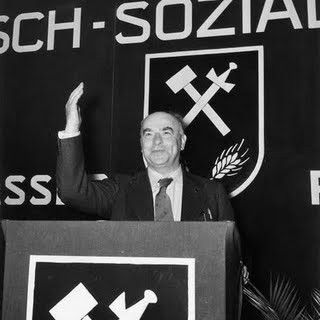 Otto Strasser nasce il 10 settembre 1897 in una famiglia di funzionari bavaresi. Suo fratello Gregor (che sarà uno dei capi del partito nazista ed un serio concorrente di Hitler) è maggiore di cinque anni. L’uno e l’altro beneficiano di solidi antecedenti familiari: il padre Peter, che si interessa di economia politica e di storia, pubblica sotto lo pseudonimo di Paaul Weger un opuscolo intitolato Das neue Wesen, nel quale si pronuncia per un socialismo cristiano e sociale. Secondo Paul Strasser, fratello di Gregor e Otto, “in questo opuscolo si trova già abbozzato l’insieme del programma culturale e politico di Gregor e Otto, cioè un socialismo cristiano sociale, che è indicato come la soluzione alle contraddizioni e alle mancanze nate dalla malattia liberale, capitalista e internazionale dei nostri tempi.” Quando scoppia la Grande Guerra, Otto Strasser interrompe i suoi studi di diritto e di economia per arruolarsi il 2 agosto 1914 (è il più giovane volontario di Baviera). Il suo brillante comportamento al fronte gli varrà la Croce di Ferro di prima classe e la proposta per l’ Ordine Militare di Max-Joseph. Prima della smobilitazione nell’aprile/maggio 1919, partecipa con il fratello Gregor, nel Corpo Franco von Epp, all’assalto contro la Repubblica sovietica di Baviera. Ritornato alla vita civile Otto riprende i suoi studi a Berlino nel 1919 e fonda la “Associazione universitaria dei veterani socialdemocratici”.
Otto Strasser nasce il 10 settembre 1897 in una famiglia di funzionari bavaresi. Suo fratello Gregor (che sarà uno dei capi del partito nazista ed un serio concorrente di Hitler) è maggiore di cinque anni. L’uno e l’altro beneficiano di solidi antecedenti familiari: il padre Peter, che si interessa di economia politica e di storia, pubblica sotto lo pseudonimo di Paaul Weger un opuscolo intitolato Das neue Wesen, nel quale si pronuncia per un socialismo cristiano e sociale. Secondo Paul Strasser, fratello di Gregor e Otto, “in questo opuscolo si trova già abbozzato l’insieme del programma culturale e politico di Gregor e Otto, cioè un socialismo cristiano sociale, che è indicato come la soluzione alle contraddizioni e alle mancanze nate dalla malattia liberale, capitalista e internazionale dei nostri tempi.” Quando scoppia la Grande Guerra, Otto Strasser interrompe i suoi studi di diritto e di economia per arruolarsi il 2 agosto 1914 (è il più giovane volontario di Baviera). Il suo brillante comportamento al fronte gli varrà la Croce di Ferro di prima classe e la proposta per l’ Ordine Militare di Max-Joseph. Prima della smobilitazione nell’aprile/maggio 1919, partecipa con il fratello Gregor, nel Corpo Franco von Epp, all’assalto contro la Repubblica sovietica di Baviera. Ritornato alla vita civile Otto riprende i suoi studi a Berlino nel 1919 e fonda la “Associazione universitaria dei veterani socialdemocratici”.


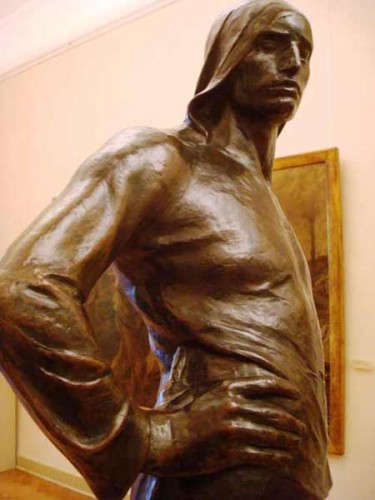 Quand la vérité n’est pas libre, la liberté n’est pas vraie,
Quand la vérité n’est pas libre, la liberté n’est pas vraie,
 del.icio.us
del.icio.us
 Digg
Digg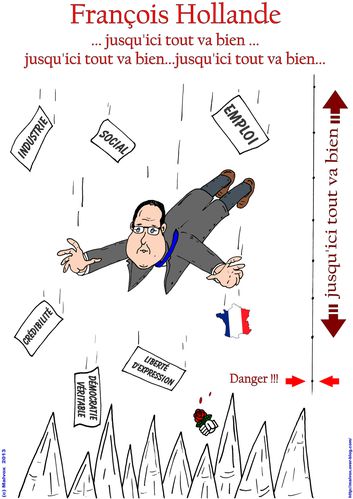
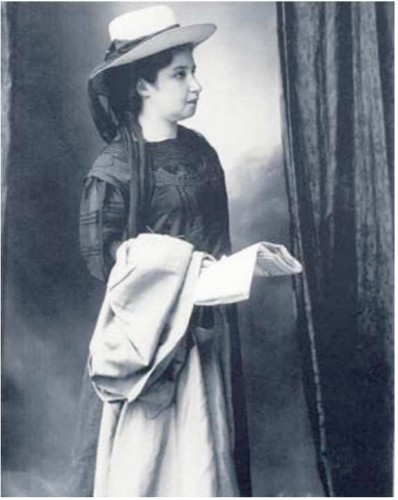
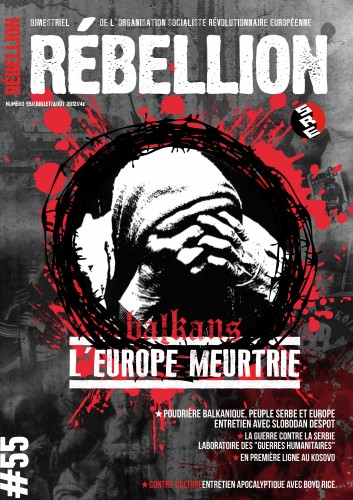

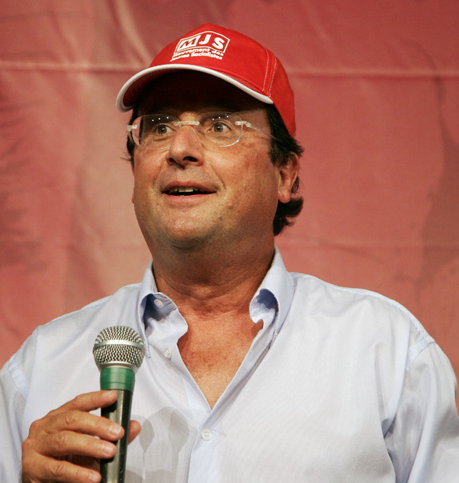
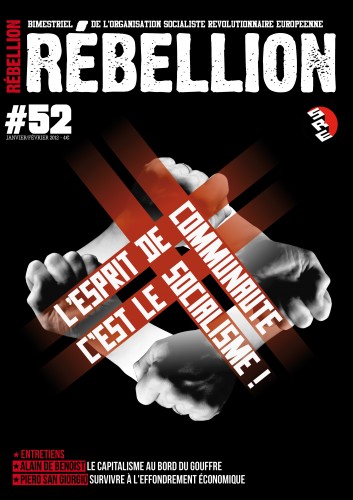
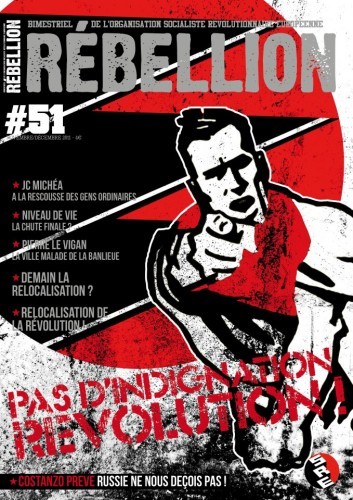

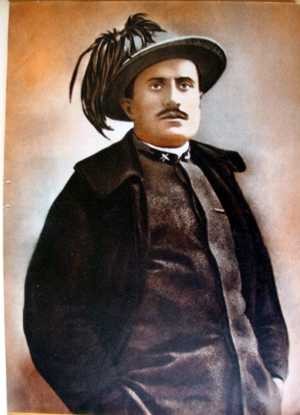 The conventional left/right model of the political spectrum holds Fascism and Marxism to be polar opposites of one another. Marxism is regarded as an ideology of the extreme Left while Fascism supposedly represents an outlook that is about as far to the Right as one can go. A title recently translated into English by Portugal’s
The conventional left/right model of the political spectrum holds Fascism and Marxism to be polar opposites of one another. Marxism is regarded as an ideology of the extreme Left while Fascism supposedly represents an outlook that is about as far to the Right as one can go. A title recently translated into English by Portugal’s 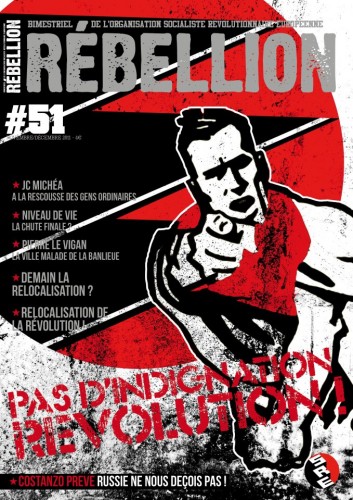
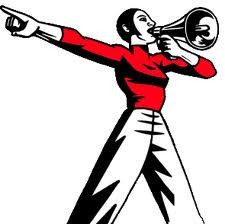

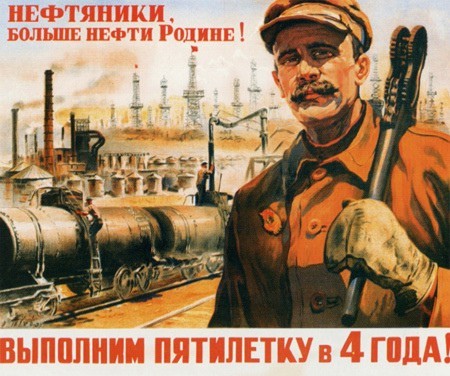
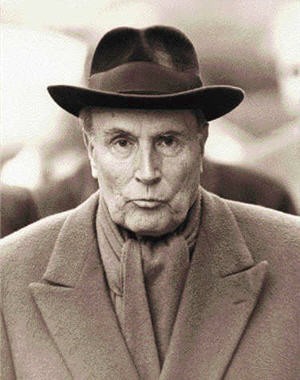
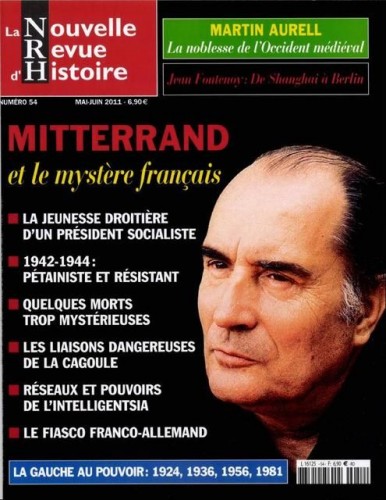
.jpg)
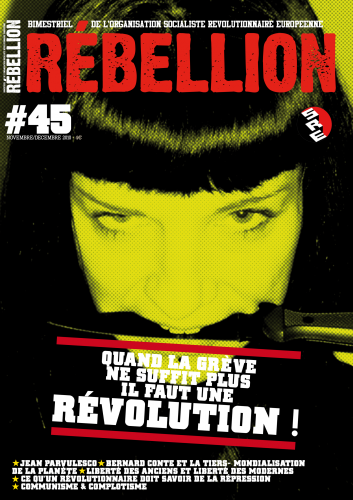
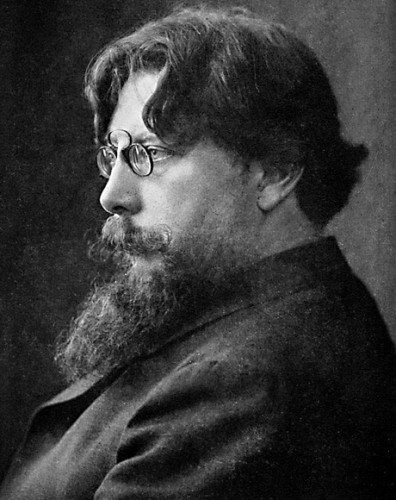 Das Freidenkertum entstand im 17. Jahrhundert in England und gelangte im Laufe des 18. Jahrhunderts auf den europäischen Kontinent, v. a. nach Frankreich. Das ursprüngliche Ziel der Bewegung war die Religionsfreiheit. Das "freie Denken" sollte die Evidenz aller Gegenstände aus der Sache ableiten, nicht aus der Autorität. Erst im "eigentümlichen Freiheitsraum des 19. Jahrhunderts" (Friedrich Heer) vollzog sich innerhalb der Freidenkerbewegung ein Wandel: man organisierte sich, versuchte die ursprünglich elitäre Idee zu popularisieren und so politischen Einfluß auszuüben - man wollte das Denken allgemein von religiösen Vorstellungen befreien. Ein Resultat war, daß die Bezeichnung Freidenker, jetzt zu Recht, synonym für Atheisten gebraucht werden konnte. 1881 wurde der Deutsche Freidenker-Bund (DFB) durch Ludwig Büchner gegründet. 1905 bzw. 1908 folgten sozialdemokratische bzw. proletarische Abspaltungen, die sich 1927 vereinigten. Ihren Höhepunkt hatte die Bewegung am Anfang der 30er Jahre. Am Zweiten Weltkrieg zerbrach der Fortschrittsglaube, mit dem Einflußverlust (und der blutigen Unterdrückung) der Kirchen kam der Hauptfeind abhanden und die Naturwissenschaft stieß v. a. in der Atom- und Astrophysik an Grenzen, die einen weltanschaulichen Materialismus unglaubwürdig machen.
Das Freidenkertum entstand im 17. Jahrhundert in England und gelangte im Laufe des 18. Jahrhunderts auf den europäischen Kontinent, v. a. nach Frankreich. Das ursprüngliche Ziel der Bewegung war die Religionsfreiheit. Das "freie Denken" sollte die Evidenz aller Gegenstände aus der Sache ableiten, nicht aus der Autorität. Erst im "eigentümlichen Freiheitsraum des 19. Jahrhunderts" (Friedrich Heer) vollzog sich innerhalb der Freidenkerbewegung ein Wandel: man organisierte sich, versuchte die ursprünglich elitäre Idee zu popularisieren und so politischen Einfluß auszuüben - man wollte das Denken allgemein von religiösen Vorstellungen befreien. Ein Resultat war, daß die Bezeichnung Freidenker, jetzt zu Recht, synonym für Atheisten gebraucht werden konnte. 1881 wurde der Deutsche Freidenker-Bund (DFB) durch Ludwig Büchner gegründet. 1905 bzw. 1908 folgten sozialdemokratische bzw. proletarische Abspaltungen, die sich 1927 vereinigten. Ihren Höhepunkt hatte die Bewegung am Anfang der 30er Jahre. Am Zweiten Weltkrieg zerbrach der Fortschrittsglaube, mit dem Einflußverlust (und der blutigen Unterdrückung) der Kirchen kam der Hauptfeind abhanden und die Naturwissenschaft stieß v. a. in der Atom- und Astrophysik an Grenzen, die einen weltanschaulichen Materialismus unglaubwürdig machen.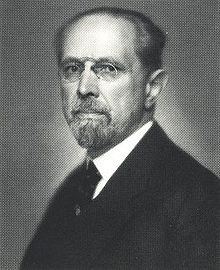 La noticia del apresurado y dichoso financiero yanqui, nos trae al recuerdo la figura del gran economista alemán profesor Werner Sombart, que ejerció docencia, justamente sonada, como profesor de Economía Política, en la Universidad de Berlín, y cuya obra es una verdadera pena que aun no haya sido traducida —que sepamos— al castellano.
La noticia del apresurado y dichoso financiero yanqui, nos trae al recuerdo la figura del gran economista alemán profesor Werner Sombart, que ejerció docencia, justamente sonada, como profesor de Economía Política, en la Universidad de Berlín, y cuya obra es una verdadera pena que aun no haya sido traducida —que sepamos— al castellano.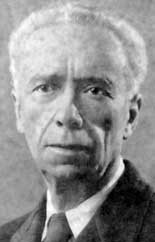
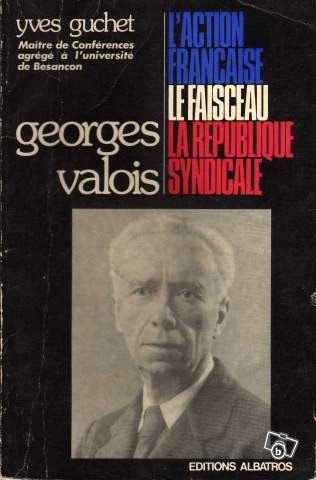 Maurras se fâche
Maurras se fâche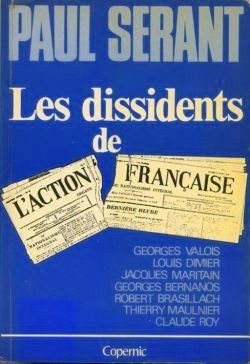 Au moment où il fonda son mouvement, Valois était persuadé que l’Action française n’en avait plus pour bien longtemps. Ce fut le contraire : l’Action française, forte de sa doctrine et de son organisation, survécut largement au Faisceau. On peut conclure de cette erreur d’appréciation que les qualités proprement politiques de Valois étaient médiocres, et que l’Action française n’eut pas à regretter beaucoup son départ.
Au moment où il fonda son mouvement, Valois était persuadé que l’Action française n’en avait plus pour bien longtemps. Ce fut le contraire : l’Action française, forte de sa doctrine et de son organisation, survécut largement au Faisceau. On peut conclure de cette erreur d’appréciation que les qualités proprement politiques de Valois étaient médiocres, et que l’Action française n’eut pas à regretter beaucoup son départ.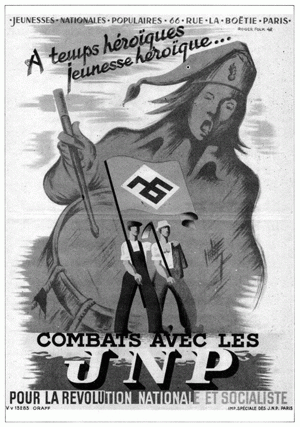 Septembre 1938 : le congrès fondateur de la Quatrième Internationale, regroupant les partisans de Trotsky, se tient à Paris. En France, deux groupuscules trotskystes rivaux s’agitent : d’un côté le Parti communiste internationaliste (PCI) de Raymond Molinier et Pierre Franck, qui édite le journal La Commune, de l’autre, le Parti ouvrier internationaliste (POI) de Jean Rous et Yvan Craipeau, chacun privilégiant le travail d’infiltration au sein du Parti socialiste ouvrier et paysan (PSOP) de Marcel Pivert. Juin 1940 : la France est vaincue et occupée par les Allemands. Les Trotskystes hexagonaux sont totalement désorientés : la guerre n’a pas provoqué la révolution attendue, le pacte germano-soviétique a scellé l’alliance d’Hitler et de Staline, et la Quatrième Internationale s’est révélée inutile. C’est dans un tel contexte que certains, convaincus de la victoire durable de l'Allemagne nationale-socialiste, élaborent une sorte de «trotskysme rouge-brun».
Septembre 1938 : le congrès fondateur de la Quatrième Internationale, regroupant les partisans de Trotsky, se tient à Paris. En France, deux groupuscules trotskystes rivaux s’agitent : d’un côté le Parti communiste internationaliste (PCI) de Raymond Molinier et Pierre Franck, qui édite le journal La Commune, de l’autre, le Parti ouvrier internationaliste (POI) de Jean Rous et Yvan Craipeau, chacun privilégiant le travail d’infiltration au sein du Parti socialiste ouvrier et paysan (PSOP) de Marcel Pivert. Juin 1940 : la France est vaincue et occupée par les Allemands. Les Trotskystes hexagonaux sont totalement désorientés : la guerre n’a pas provoqué la révolution attendue, le pacte germano-soviétique a scellé l’alliance d’Hitler et de Staline, et la Quatrième Internationale s’est révélée inutile. C’est dans un tel contexte que certains, convaincus de la victoire durable de l'Allemagne nationale-socialiste, élaborent une sorte de «trotskysme rouge-brun».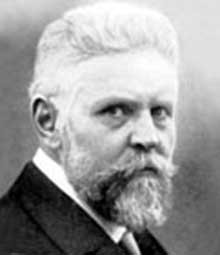 In Deutschland führte der Nationalökonom und Mediziner Alfred Ploetz (1860–1940) im Jahre 1895 den Begriff der „Rassenhygiene“ für die Eugenik ein. Neu war jedoch nur der Begriff, die Prämissen und Inhalte lagen auf Galtons Linie. In seiner Schrift Die Tüchtigkeit unserer Rasse und der Schutz der Schwachen sprach sich Ploetz für ein wissenschaftlich angeleitetes Reproduktionsverhalten der Bevölkerung aus. Über den „Erbwert“ von Nachkommen sollten Ärzte entscheiden. „Rassenhygiene als Wissenschaft ist die Lehre von den Bedingungen der optimalen Erhaltung und Vervollkommnung der menschlichen Rasse“, definierte Ploetz. „Als Praxis ist sie die Gesamtheit der aus dieser Lehre folgenden Maßnahmen, deren Objekt die optimale Erhaltung und Vervollkommnung der Rasse ist, und deren Subjekte sowohl Individuen als auch gesellschaftliche Gebilde einschließlich des Staates sein können.“
In Deutschland führte der Nationalökonom und Mediziner Alfred Ploetz (1860–1940) im Jahre 1895 den Begriff der „Rassenhygiene“ für die Eugenik ein. Neu war jedoch nur der Begriff, die Prämissen und Inhalte lagen auf Galtons Linie. In seiner Schrift Die Tüchtigkeit unserer Rasse und der Schutz der Schwachen sprach sich Ploetz für ein wissenschaftlich angeleitetes Reproduktionsverhalten der Bevölkerung aus. Über den „Erbwert“ von Nachkommen sollten Ärzte entscheiden. „Rassenhygiene als Wissenschaft ist die Lehre von den Bedingungen der optimalen Erhaltung und Vervollkommnung der menschlichen Rasse“, definierte Ploetz. „Als Praxis ist sie die Gesamtheit der aus dieser Lehre folgenden Maßnahmen, deren Objekt die optimale Erhaltung und Vervollkommnung der Rasse ist, und deren Subjekte sowohl Individuen als auch gesellschaftliche Gebilde einschließlich des Staates sein können.“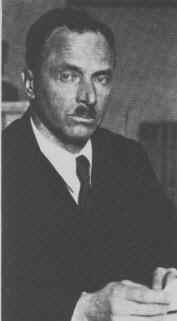

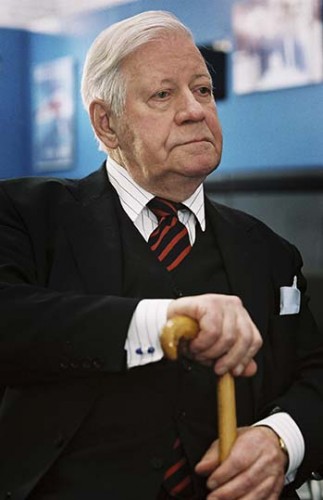 Q. : Quel est le nerf que Sarrazin a effectivement touché ?
Q. : Quel est le nerf que Sarrazin a effectivement touché ?